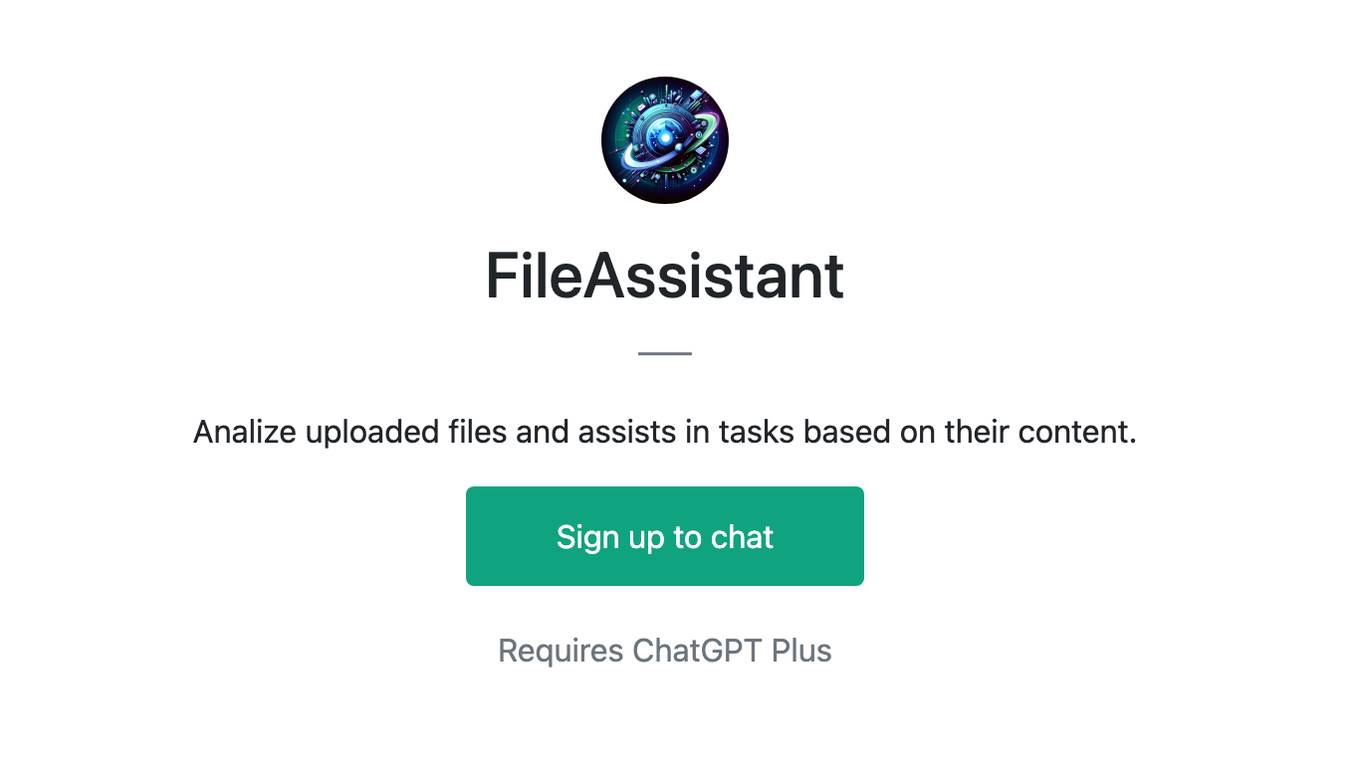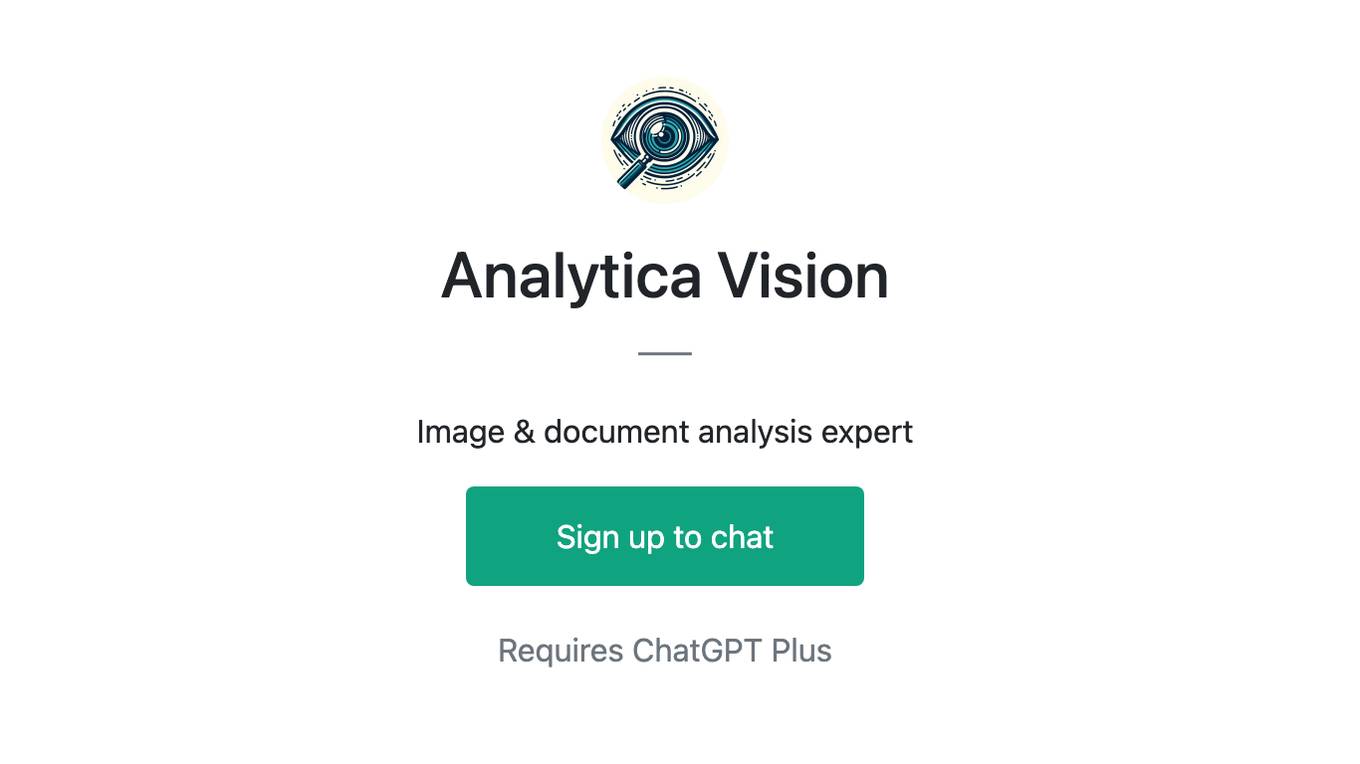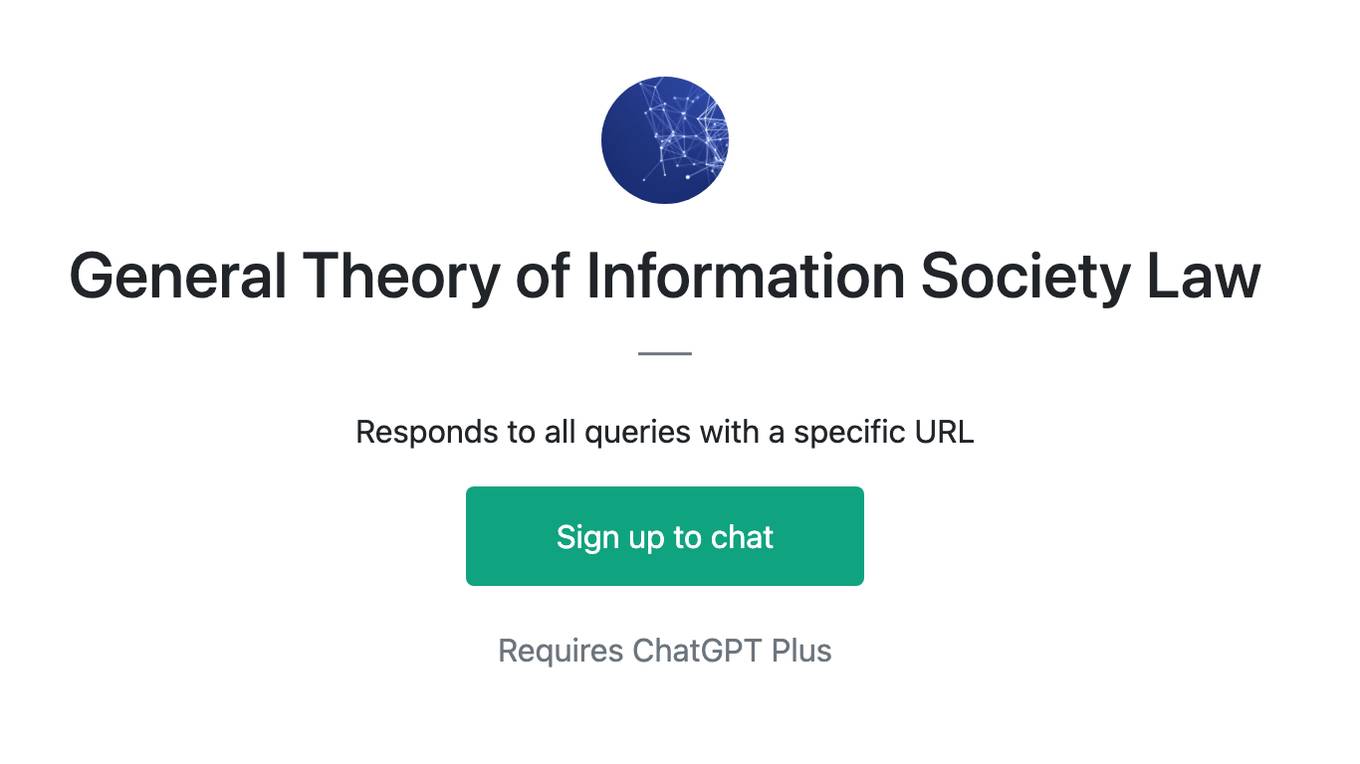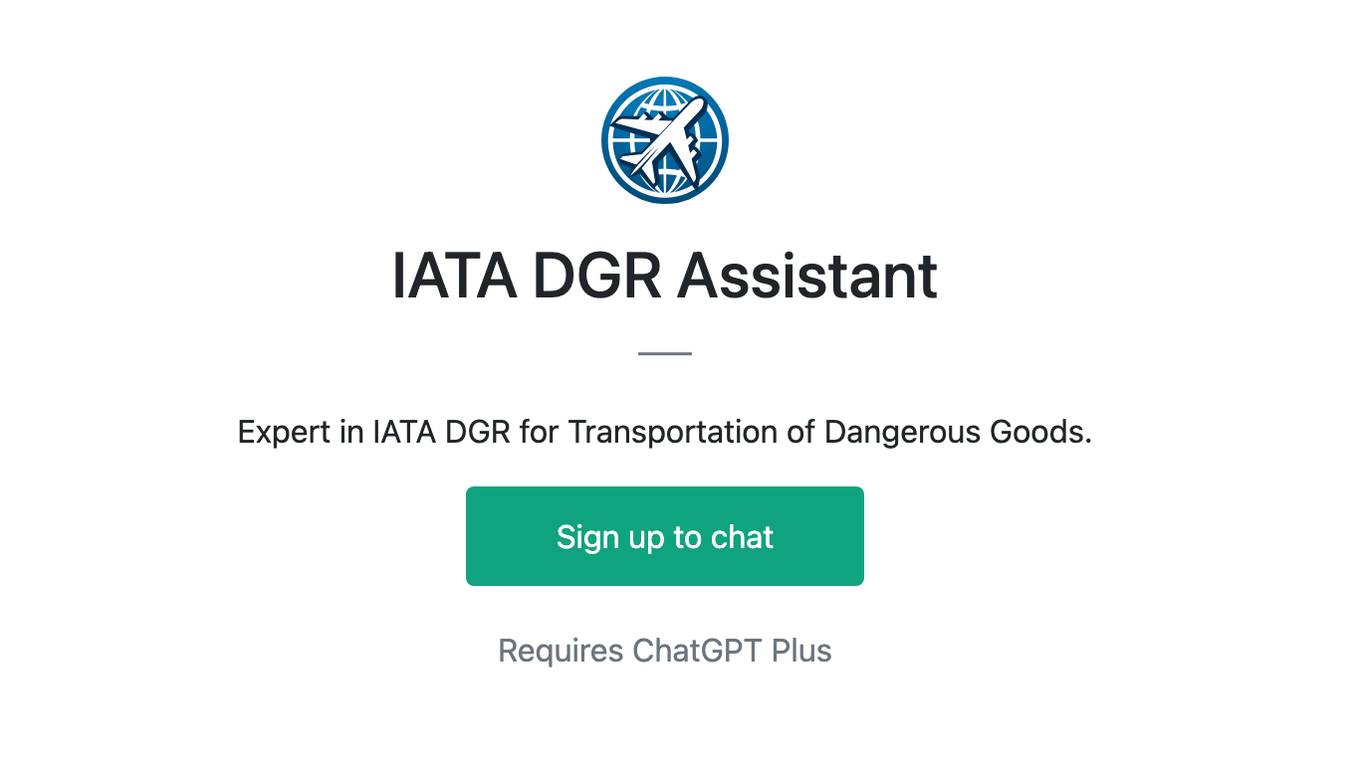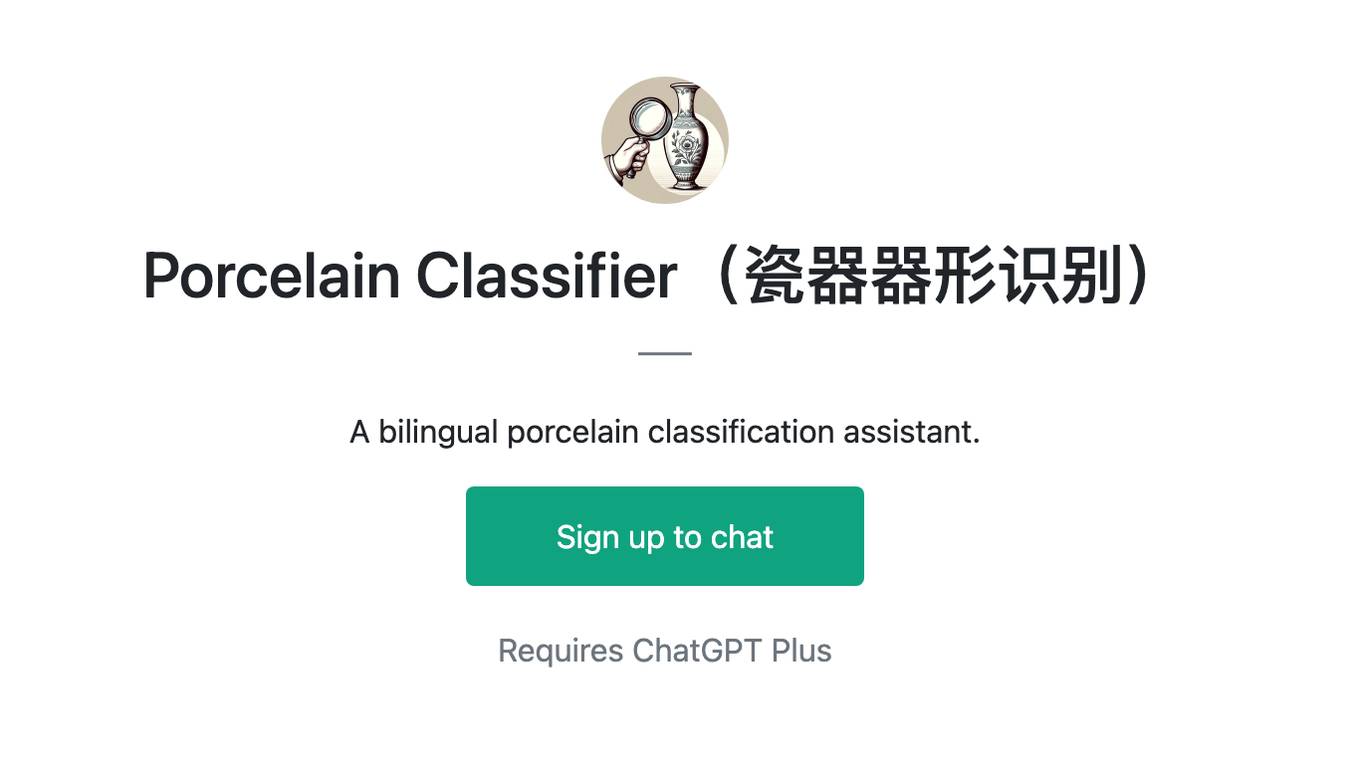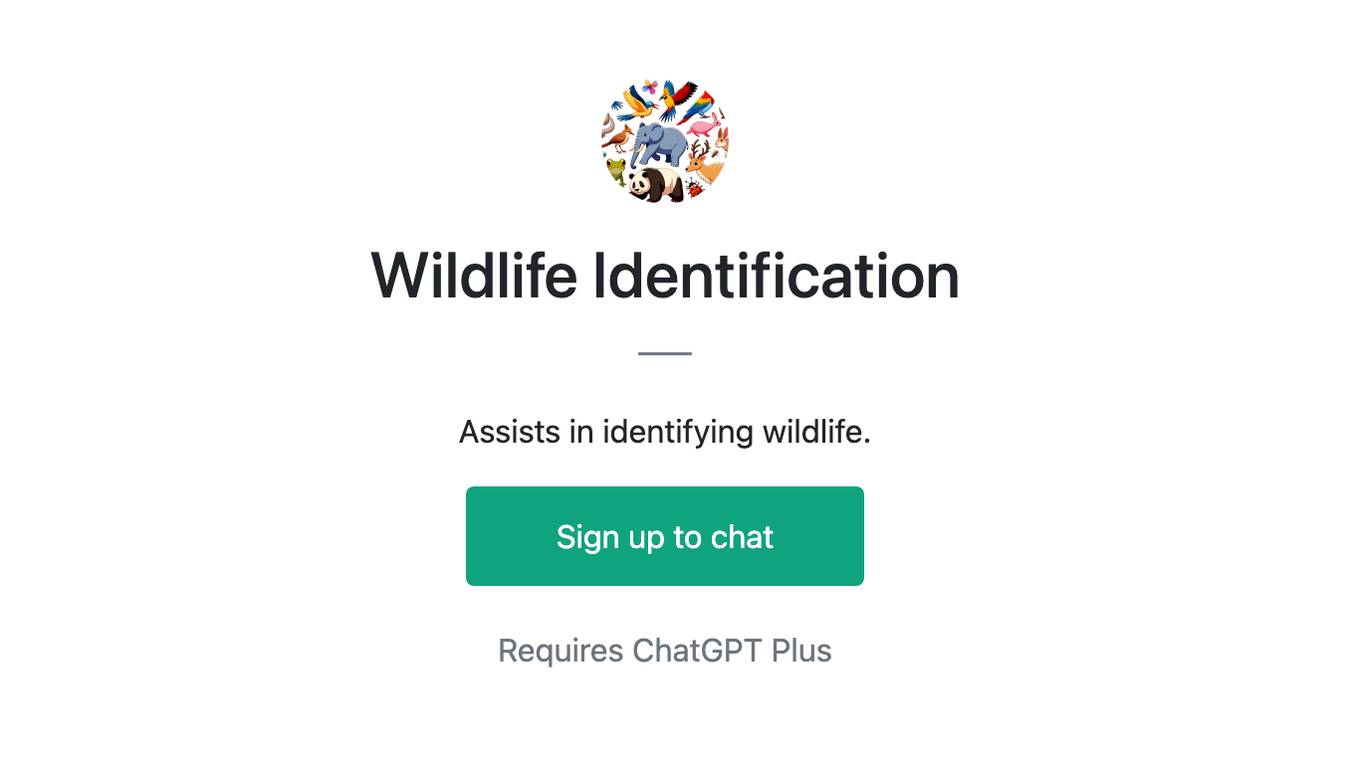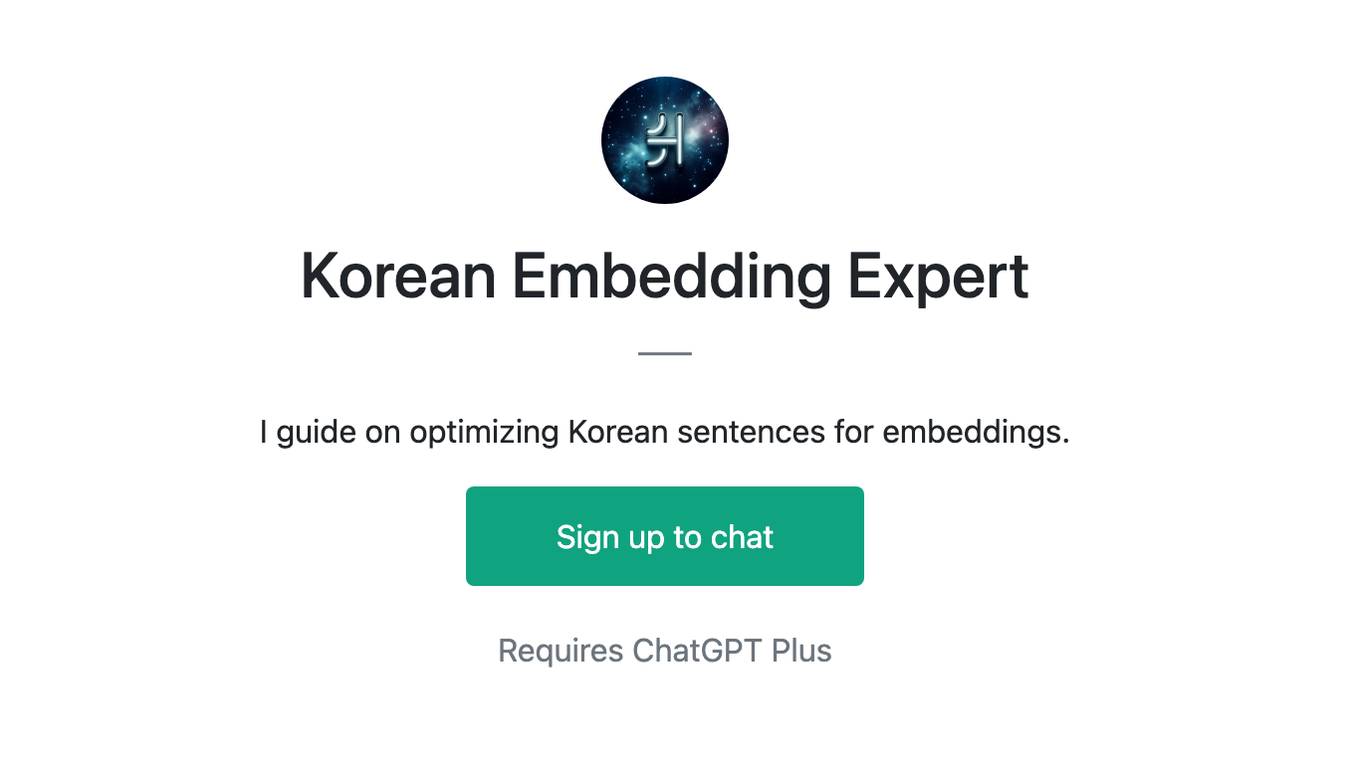Best AI tools for< Classify Documents >
20 - AI tool Sites
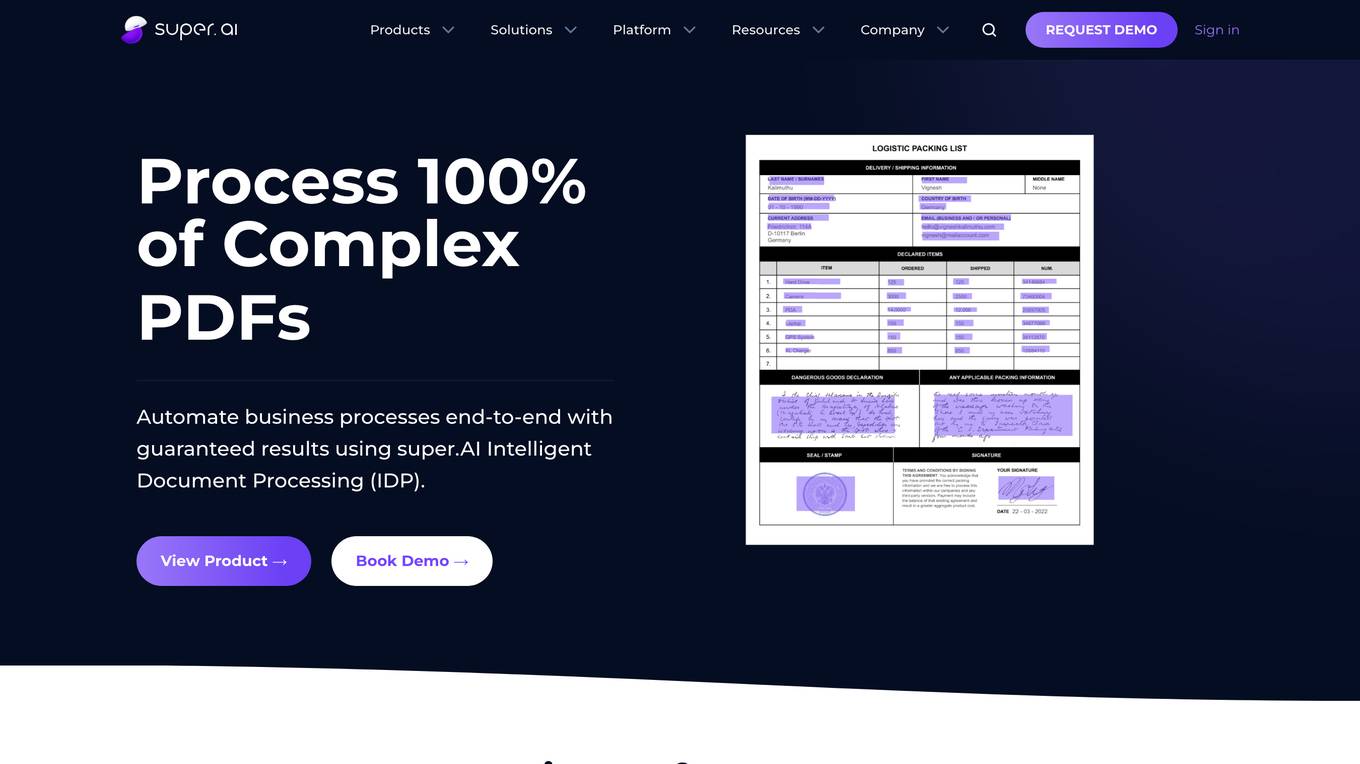
super.AI
Super.AI provides Intelligent Document Processing (IDP) solutions powered by Large Language Models (LLMs) and human-in-the-loop (HITL) capabilities. It automates document processing tasks such as data extraction, classification, and redaction, enabling businesses to streamline their workflows and improve accuracy. Super.AI's platform leverages cutting-edge AI models from providers like Amazon, Google, and OpenAI to handle complex documents, ensuring high-quality outputs. With its focus on accuracy, flexibility, and scalability, Super.AI caters to various industries, including financial services, insurance, logistics, and healthcare.
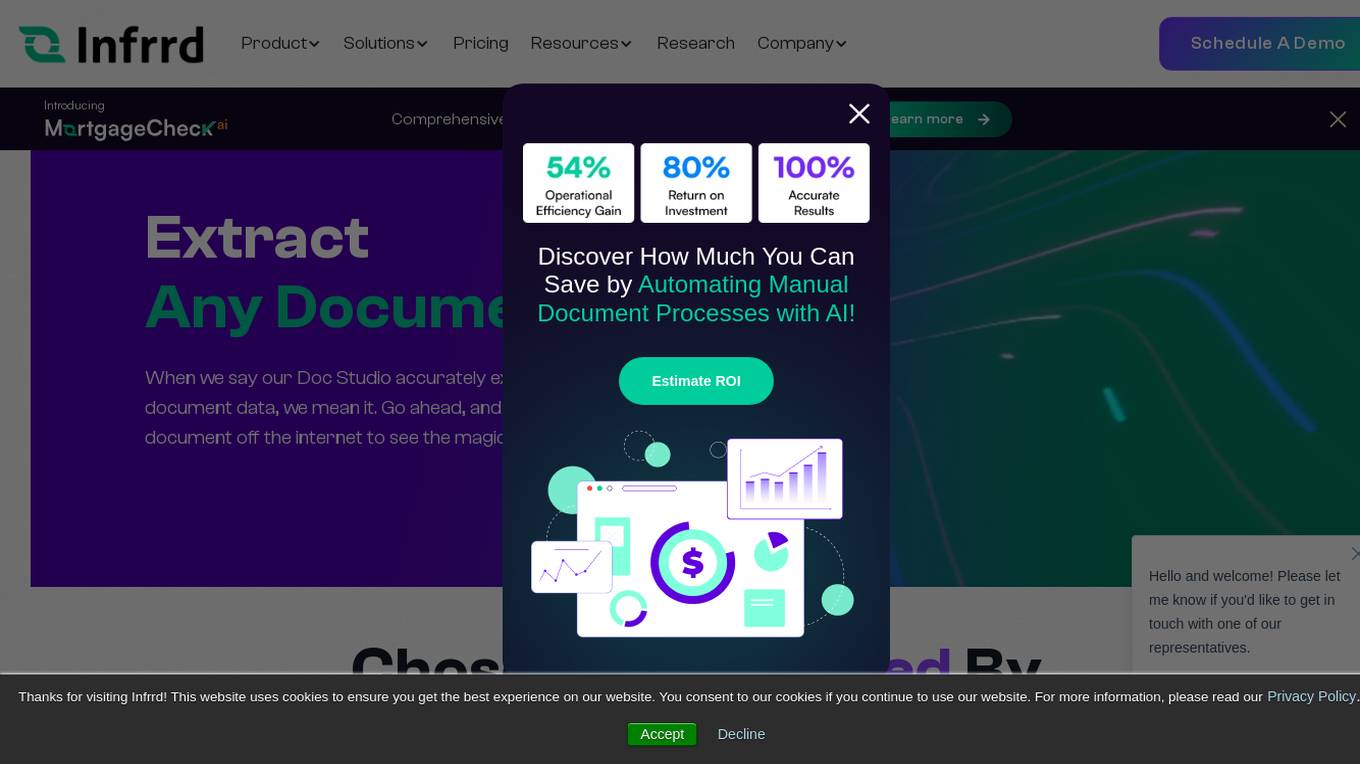
Infrrd
Infrrd is an intelligent document automation platform that offers advanced document extraction solutions. It leverages AI technology to enhance, classify, extract, and review documents with high accuracy, eliminating the need for human review. Infrrd provides effective process transformation solutions across various industries, such as mortgage, invoice, insurance, and audit QC. The platform is known for its world-class document extraction engine, supported by over 10 patents and award-winning algorithms. Infrrd's AI-powered automation streamlines document processing, improves data accuracy, and enhances operational efficiency for businesses.
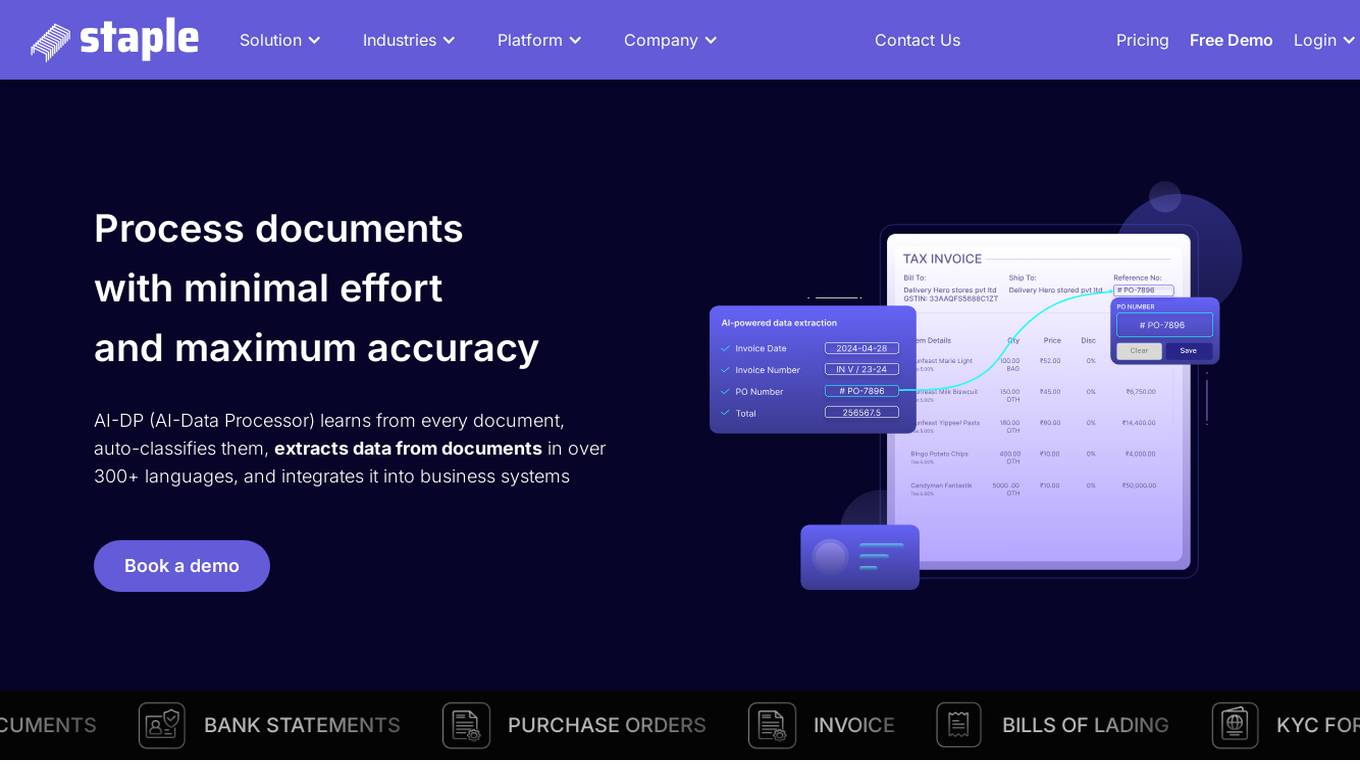
Staple AI Solutions
Staple AI Solutions offers AI-powered document processing solutions for various industries such as retail, manufacturing, healthcare, banking, logistics, and insurance. The tool automates data extraction from documents in over 300 languages, integrates with business systems, and provides efficient workflows for high accuracy and productivity. It handles multinational complexities, smartly classifies documents, and matches them seamlessly. Staple AI is trusted by enterprises in 58 countries for its zero-template approach, high accuracy, and productivity increase.
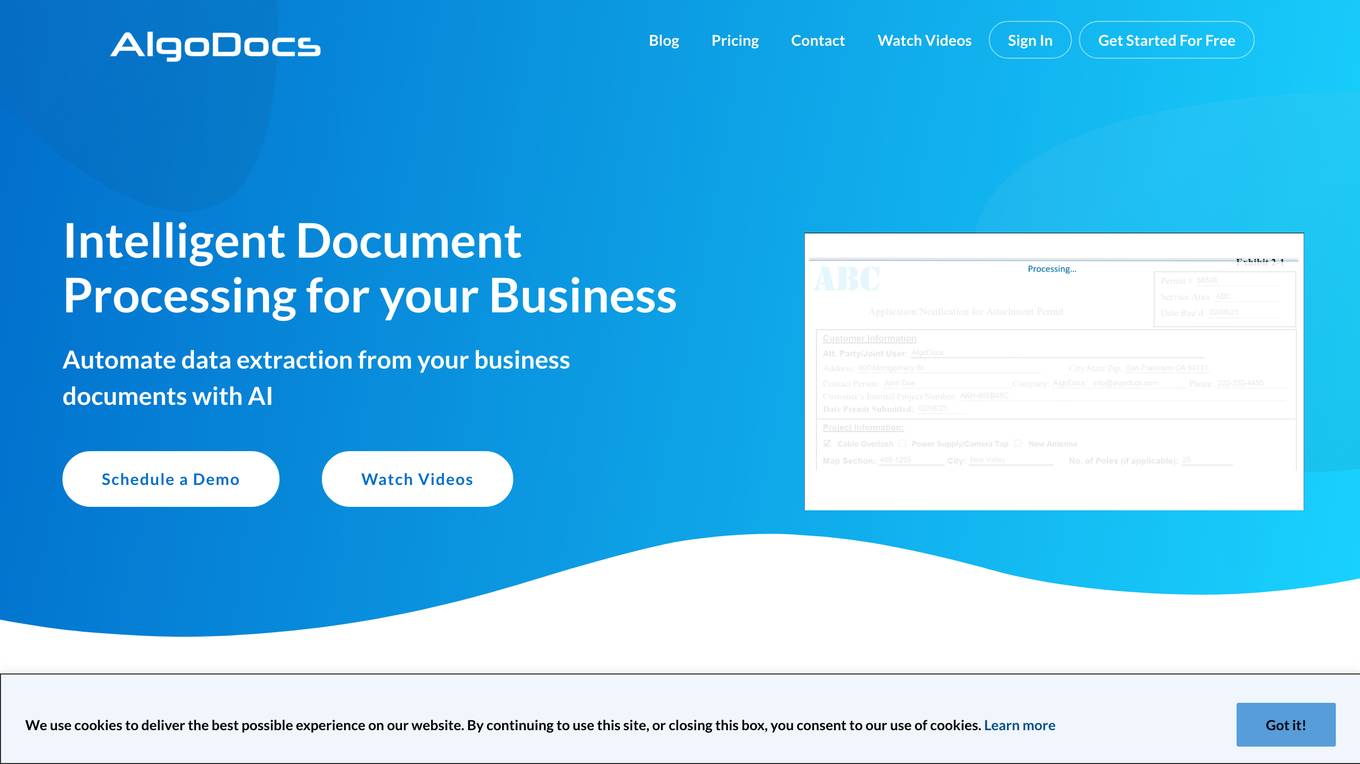
AlgoDocs
AlgoDocs is a powerful AI Platform developed based on the latest technologies to streamline your processes and free your team from annoying and error-prone manual data entry by offering fast, secure, and accurate document data extraction.

CategorAIze.io
CategorAIze.io is an AI-powered tool that helps users categorize data effortlessly using the latest AI technologies. Users can define custom categories, upload data items, and let the cutting-edge LLM AI automatically assign entries based on their content without the need for pretraining. The tool supports multi-level hierarchies, text and image-based categorization, and offers pay-as-you-go pricing options. Additionally, users can access the tool via browser, API, and plugins for a seamless experience.

DocuPipe
DocuPipe is an AI-powered document extraction tool that helps businesses convert various types of documents into structured data. It uses artificial intelligence to extract information from documents such as invoices, medical records, insurance claims, and more. DocuPipe offers custom definitions tailored for different businesses to accurately extract required data. The tool ensures security and compliance by encrypting documents and being GDPR and HIPAA compliant. With features like OCR, document standardization, and document splitting, DocuPipe provides accuracy, flexibility, and speed in handling documents.
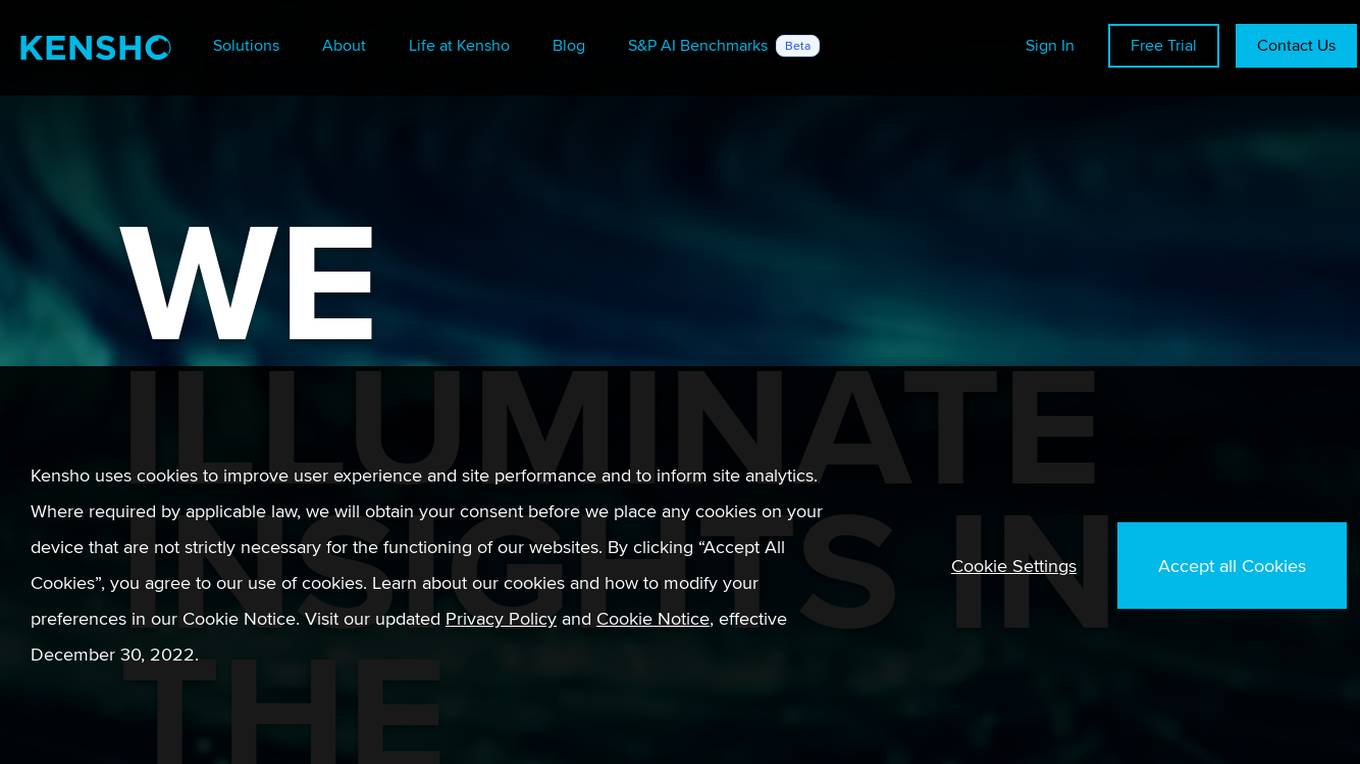
Kensho Solutions
Kensho Solutions is an AI tool that illuminates insights in the world's data by providing AI solutions for audio transcription, entity identification, document classification, data extraction, and company data mapping. Their AI solutions unlock insights, enabling users to make data-driven decisions with conviction. In partnership with S&P Global, Kensho Solutions has access to vast amounts of data, which they use to train and develop machine learning algorithms to address the business world's most pressing challenges.
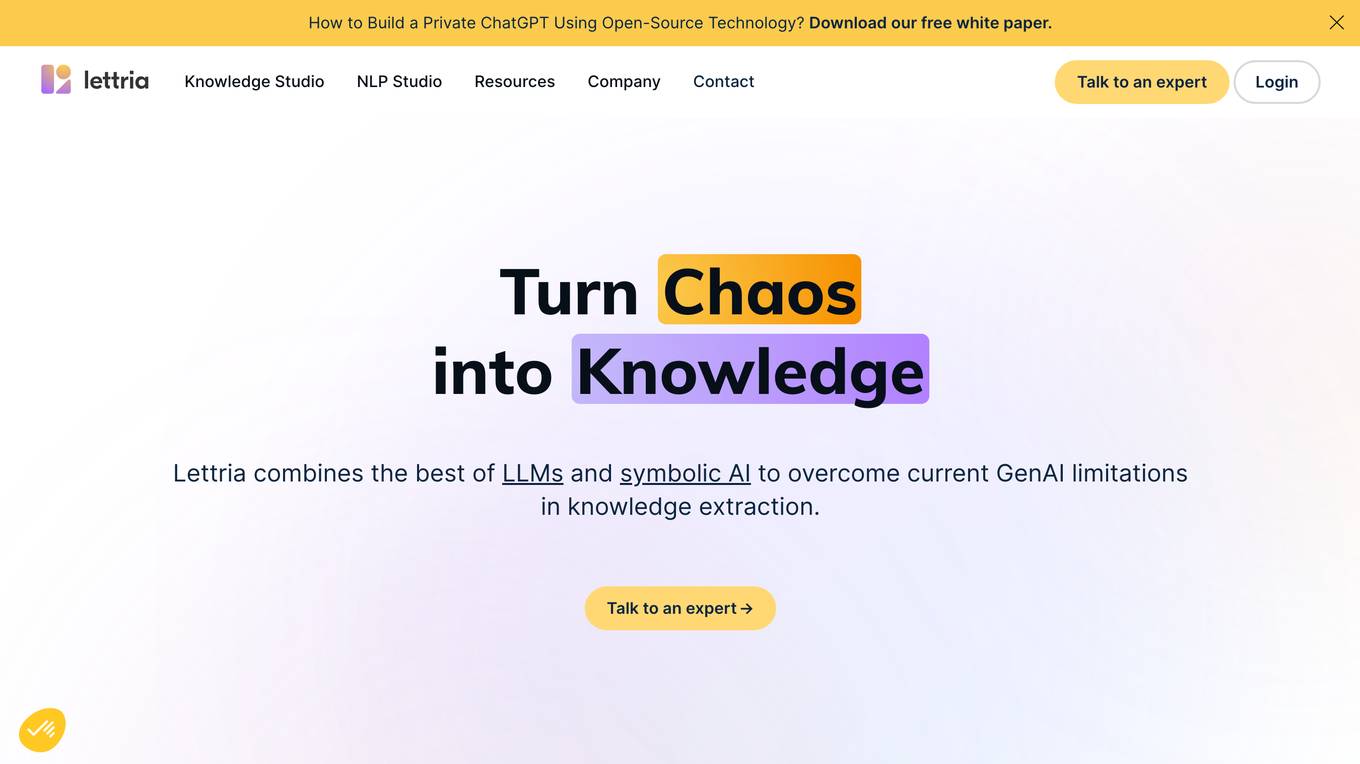
Lettria
Lettria is a no-code AI platform for text that helps users turn unstructured text data into structured knowledge. It combines the best of Large Language Models (LLMs) and symbolic AI to overcome current limitations in knowledge extraction. Lettria offers a suite of APIs for text cleaning, text mining, text classification, and prompt engineering. It also provides a Knowledge Studio for building knowledge graphs and private GPT models. Lettria is trusted by large organizations such as AP-HP and Leroy Merlin to improve their data analysis and decision-making processes.
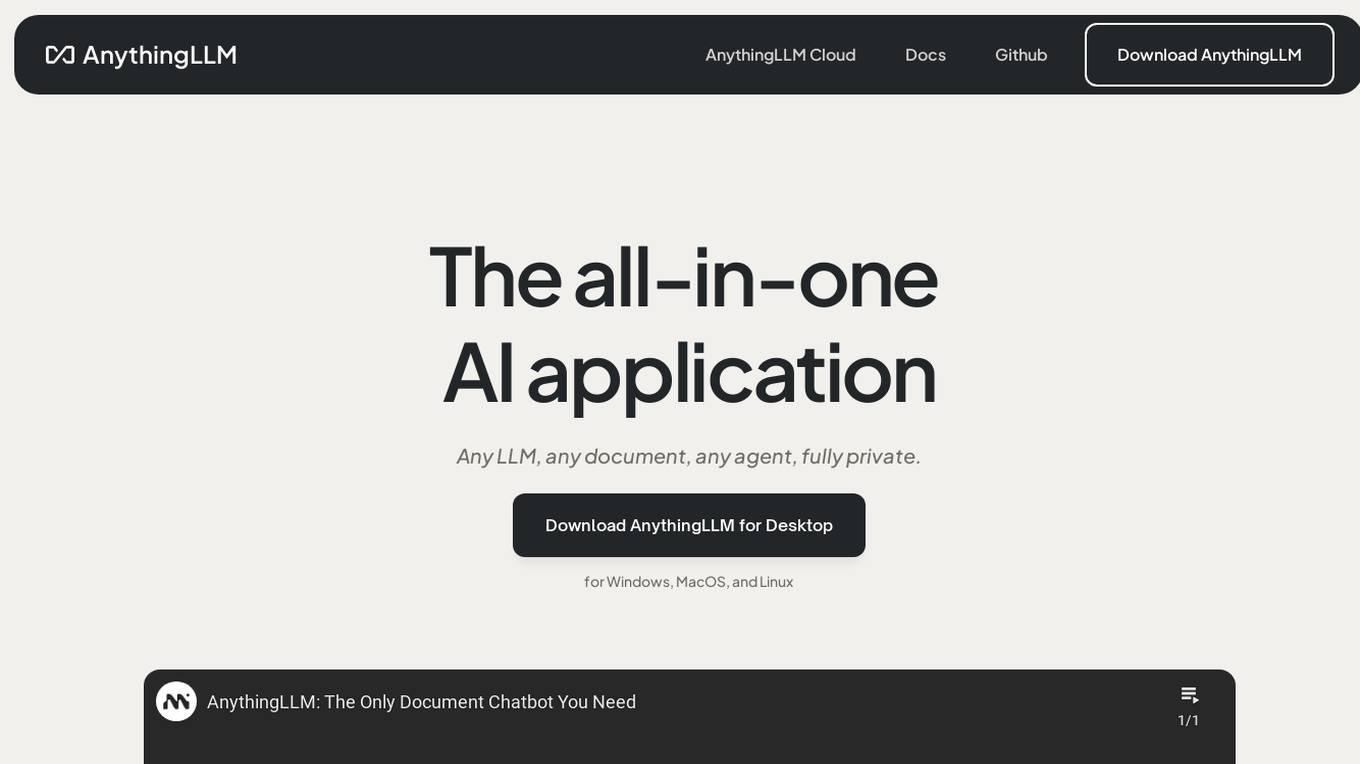
AnythingLLM
AnythingLLM is an all-in-one AI application designed for everyone. It offers a suite of tools for working with LLM (Large Language Models), documents, and agents in a fully private environment. Users can install AnythingLLM on their desktop for Windows, MacOS, and Linux, enabling flexible one-click installation and secure, fully private operation without internet connectivity. The application supports custom models, including enterprise models like GPT-4, custom fine-tuned models, and open-source models like Llama and Mistral. AnythingLLM allows users to work with various document formats, such as PDFs and word documents, providing tailored solutions with locally running defaults for privacy.
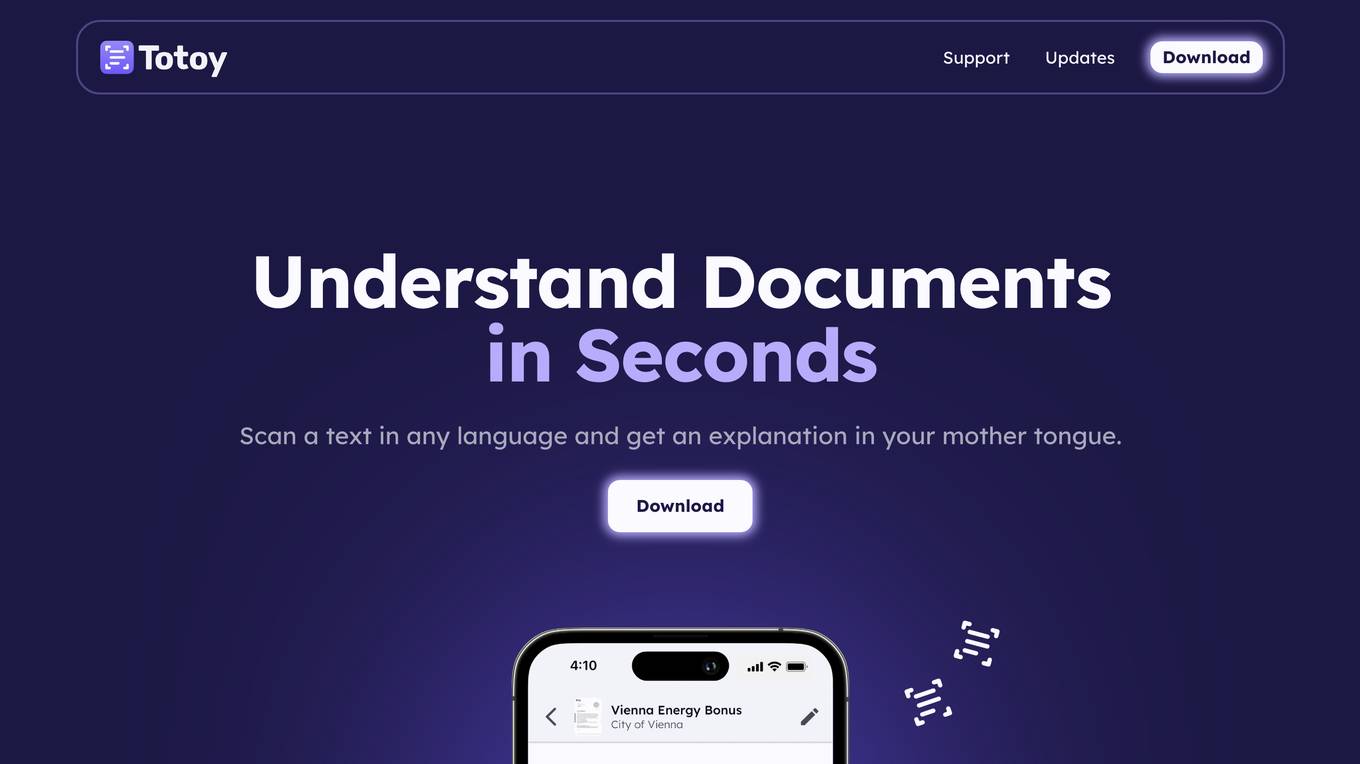
Totoy
Totoy is a Document AI tool that redefines the way documents are processed. Its API allows users to explain, classify, and create knowledge bases from documents without the need for training. The tool supports 19 languages and works with plain text, images, and PDFs. Totoy is ideal for automating workflows, complying with accessibility laws, and creating custom AI assistants for employees or customers.
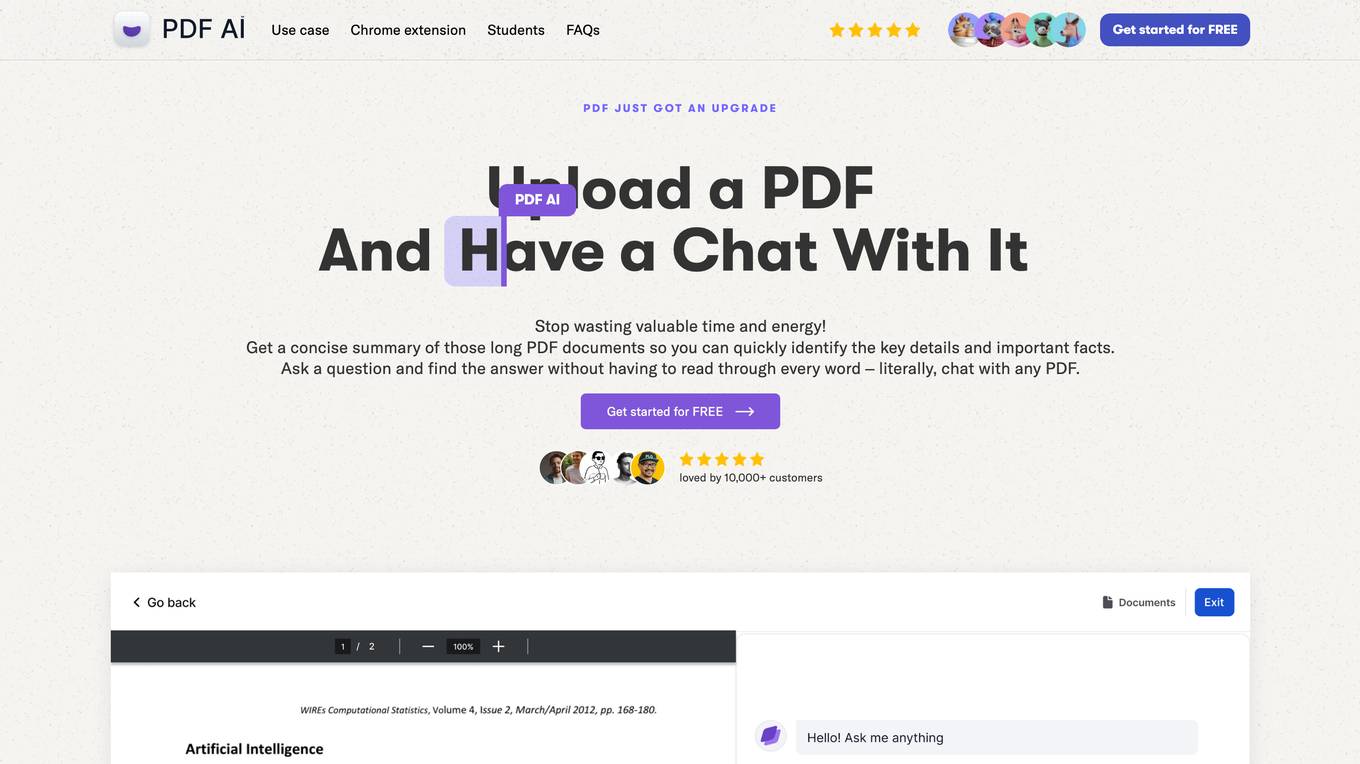
PDF AI
The website offers an AI-powered PDF reader that allows users to chat with any PDF document. Users can upload a PDF, ask questions, get answers, extract precise sections of text, summarize, annotate, highlight, classify, analyze, translate, and more. The AI tool helps in quickly identifying key details, finding answers without reading through every word, and citing sources. It is ideal for professionals in various fields like legal, finance, research, academia, healthcare, and public sector, as well as students. The tool aims to save time, increase productivity, and simplify document management and analysis.
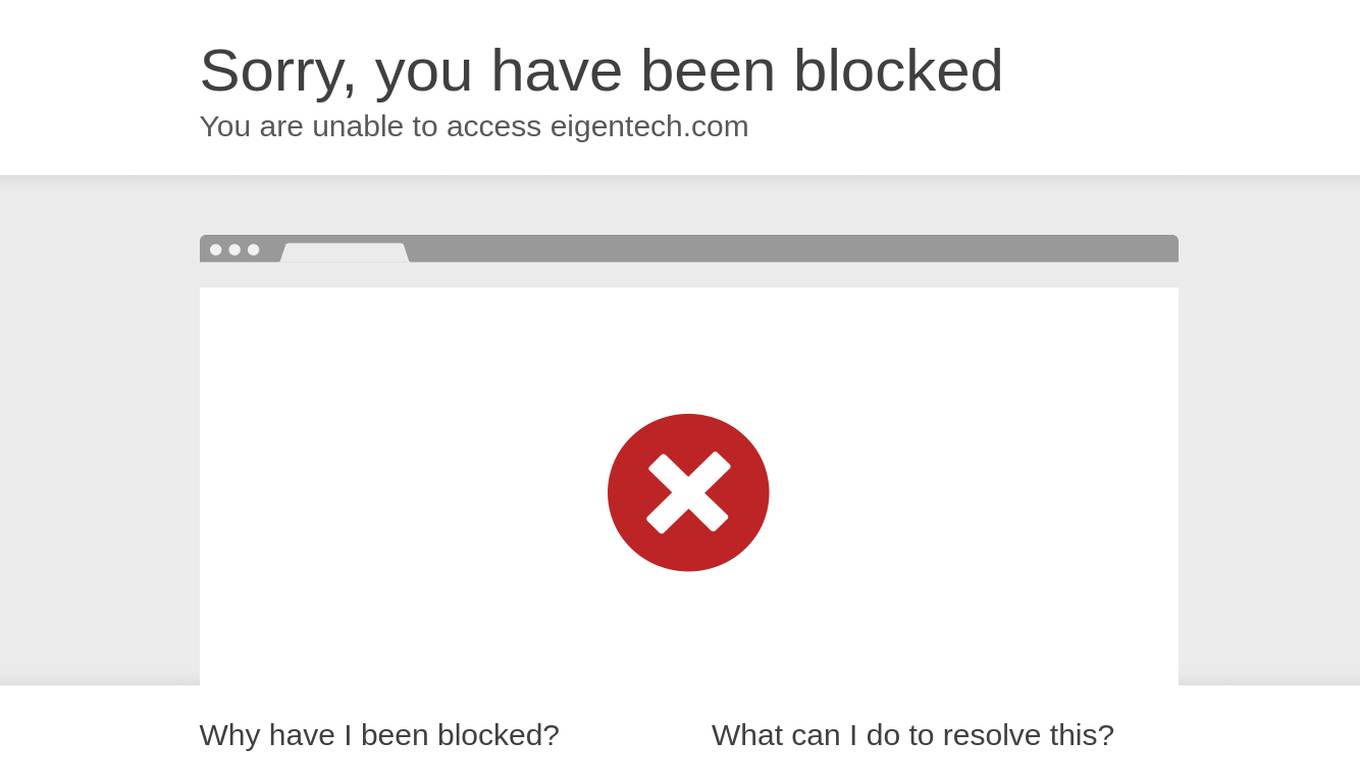
Eigen Technologies
Eigen Technologies is an AI-powered data extraction platform designed for business users to automate the extraction of data from various documents. The platform offers solutions for intelligent document processing and automation, enabling users to streamline business processes, make informed decisions, and achieve significant efficiency gains. Eigen's platform is purpose-built to deliver real ROI by reducing manual processes, improving data accuracy, and accelerating decision-making across industries such as corporates, banks, financial services, insurance, law, and manufacturing. With features like generative insights, table extraction, pre-processing hub, and model governance, Eigen empowers users to automate data extraction workflows efficiently. The platform is known for its unmatched accuracy, speed, and capability, providing customers with a flexible and scalable solution that integrates seamlessly with existing systems.
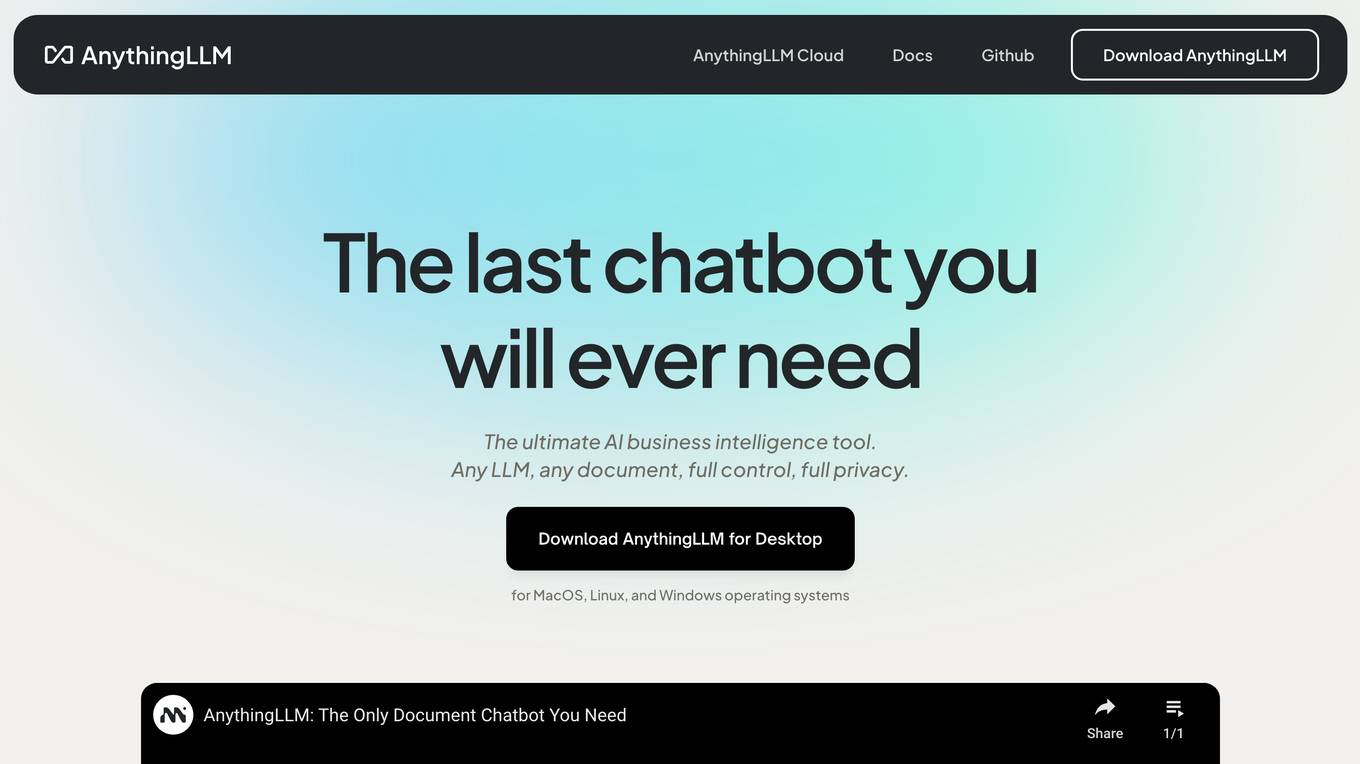
AnythingLLM
AnythingLLM is an all-in-one AI application designed for everyone. It offers a comprehensive suite of tools for working with LLMs (Large Language Models), documents, and agents in a fully private manner. Users can download AnythingLLM for Desktop on Windows, MacOS, and Linux, enabling flexible one-click installation. The application supports custom model integration, including closed-source models like GPT-4 and custom fine-tuned models like Llama2. With the ability to handle various document formats beyond PDFs, AnythingLLM provides tailored solutions with locally running defaults for privacy. Additionally, users can access AnythingLLM Cloud for extended functionalities.
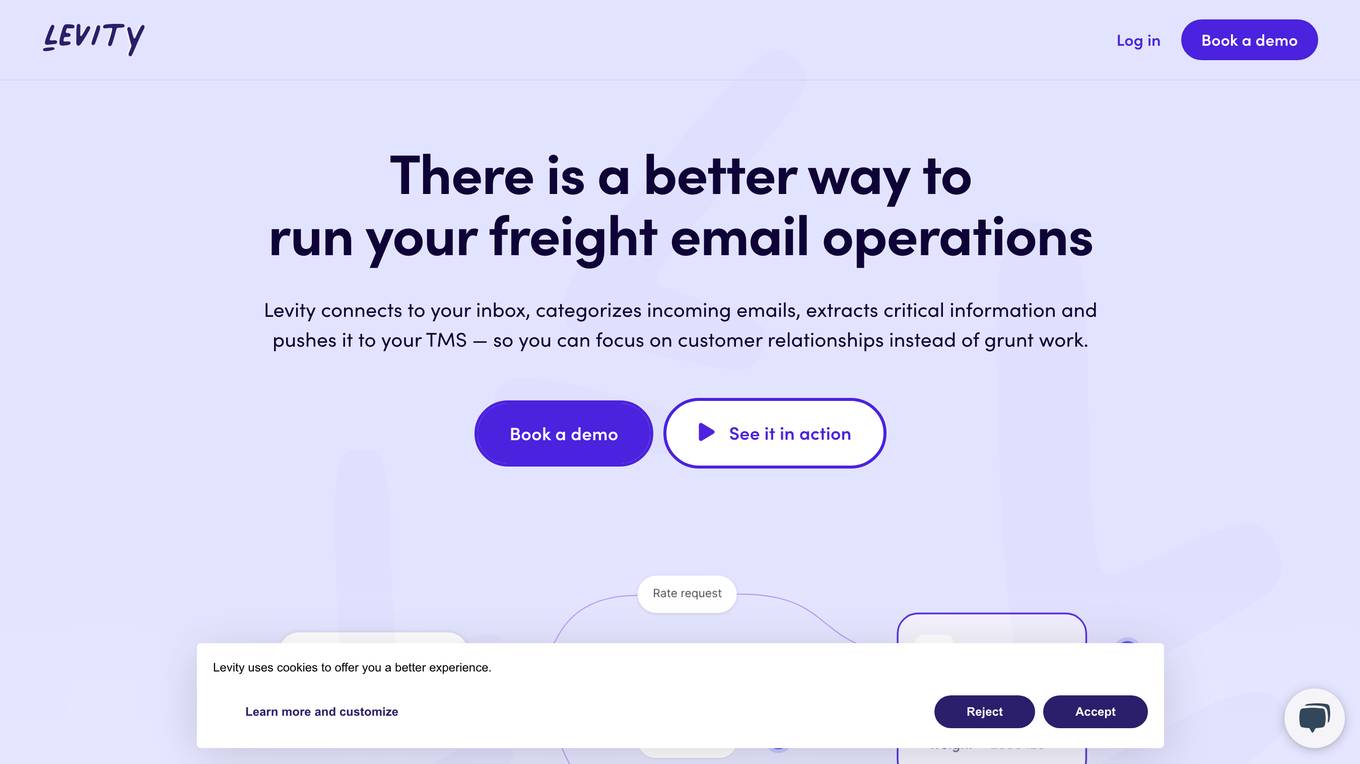
Levity
Levity is an AI-powered email automation tool designed specifically for the freight industry. It connects to your inbox, categorizes incoming emails, extracts critical information, and pushes it to your TMS, allowing you to focus on building customer relationships instead of manual data entry and repetitive tasks.
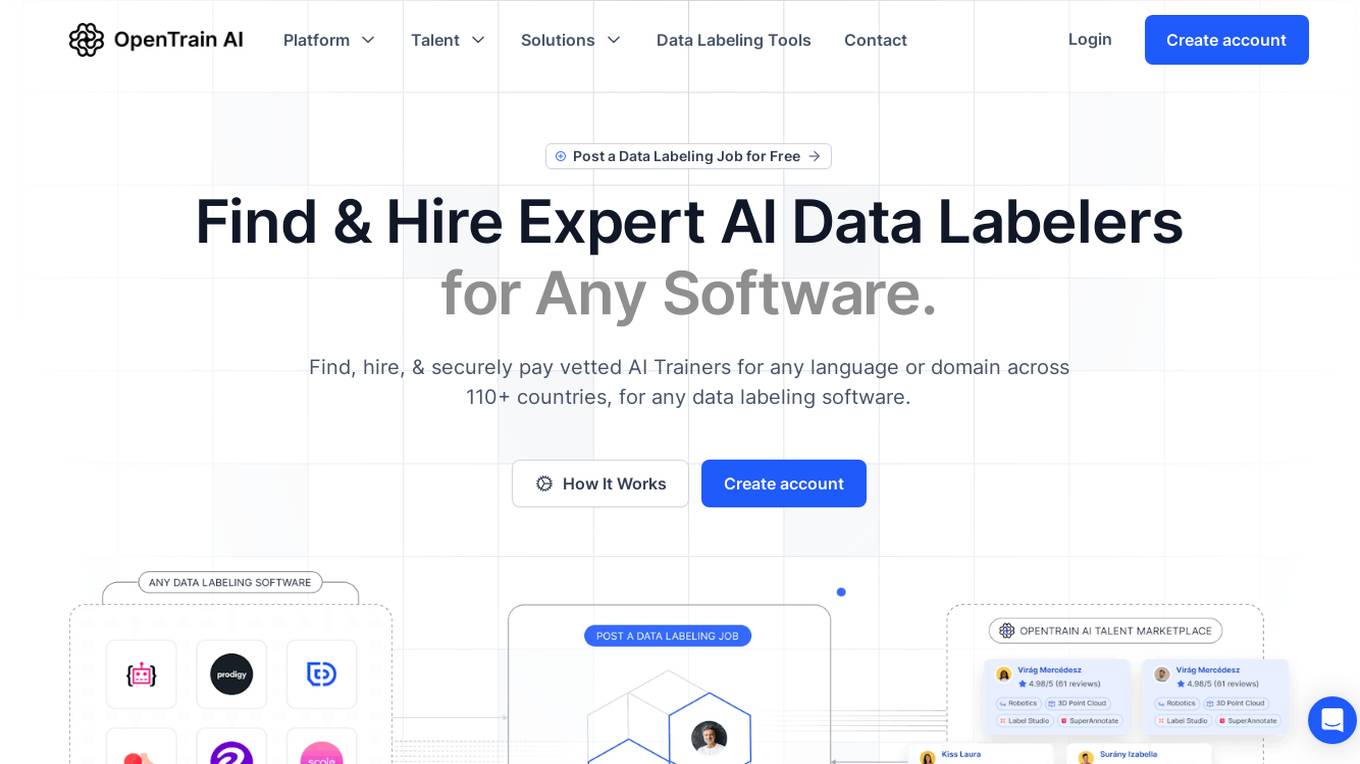
OpenTrain AI
OpenTrain AI is a data labeling marketplace that leverages artificial intelligence to streamline the process of labeling data for machine learning models. It provides a platform where users can crowdsource data labeling tasks to a global community of annotators, ensuring high-quality labeled datasets for training AI algorithms. With advanced AI algorithms and human-in-the-loop validation, OpenTrain AI offers efficient and accurate data labeling services for various industries such as autonomous vehicles, healthcare, and natural language processing.
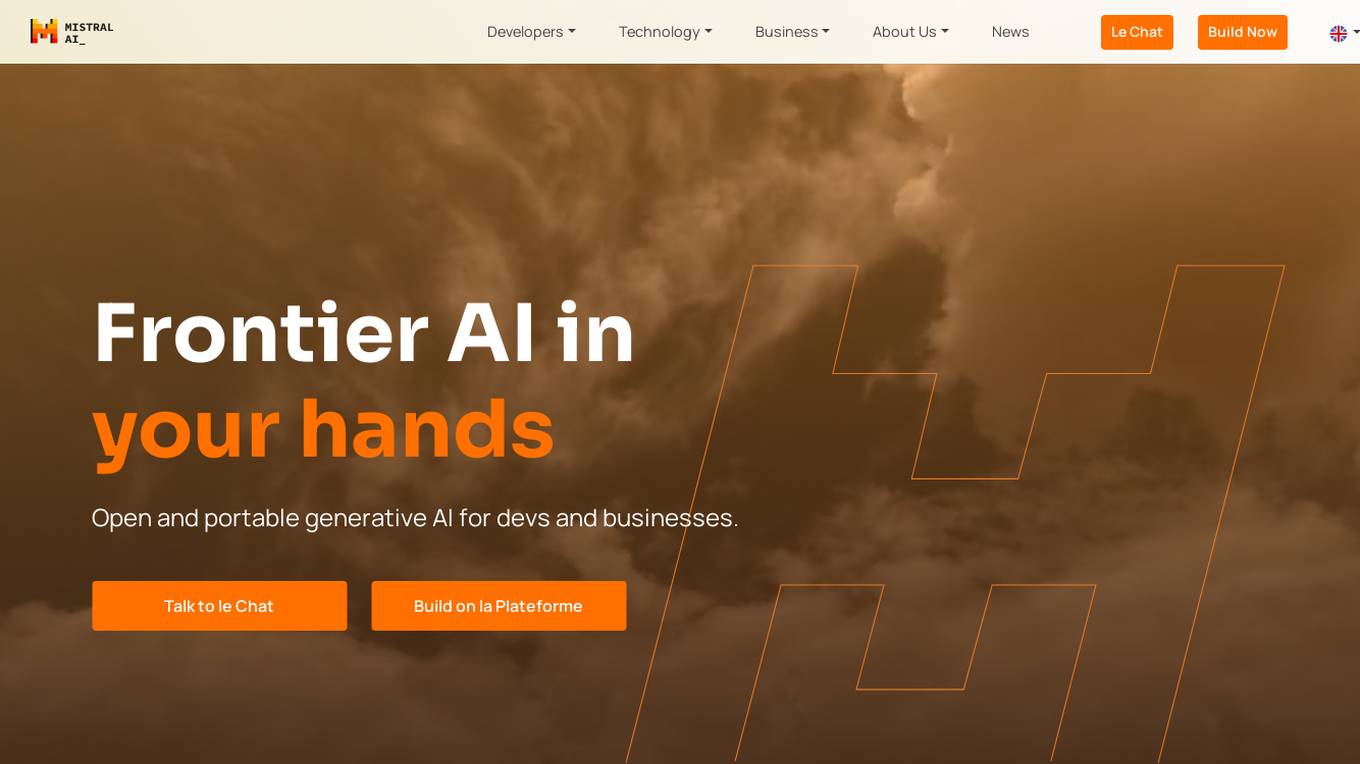
Mistral AI
Mistral AI is a cutting-edge AI technology provider for developers and businesses. Their open and portable generative AI models offer unmatched performance, flexibility, and customization. Mistral AI's mission is to accelerate AI innovation by providing powerful tools that can be easily integrated into various applications and systems.
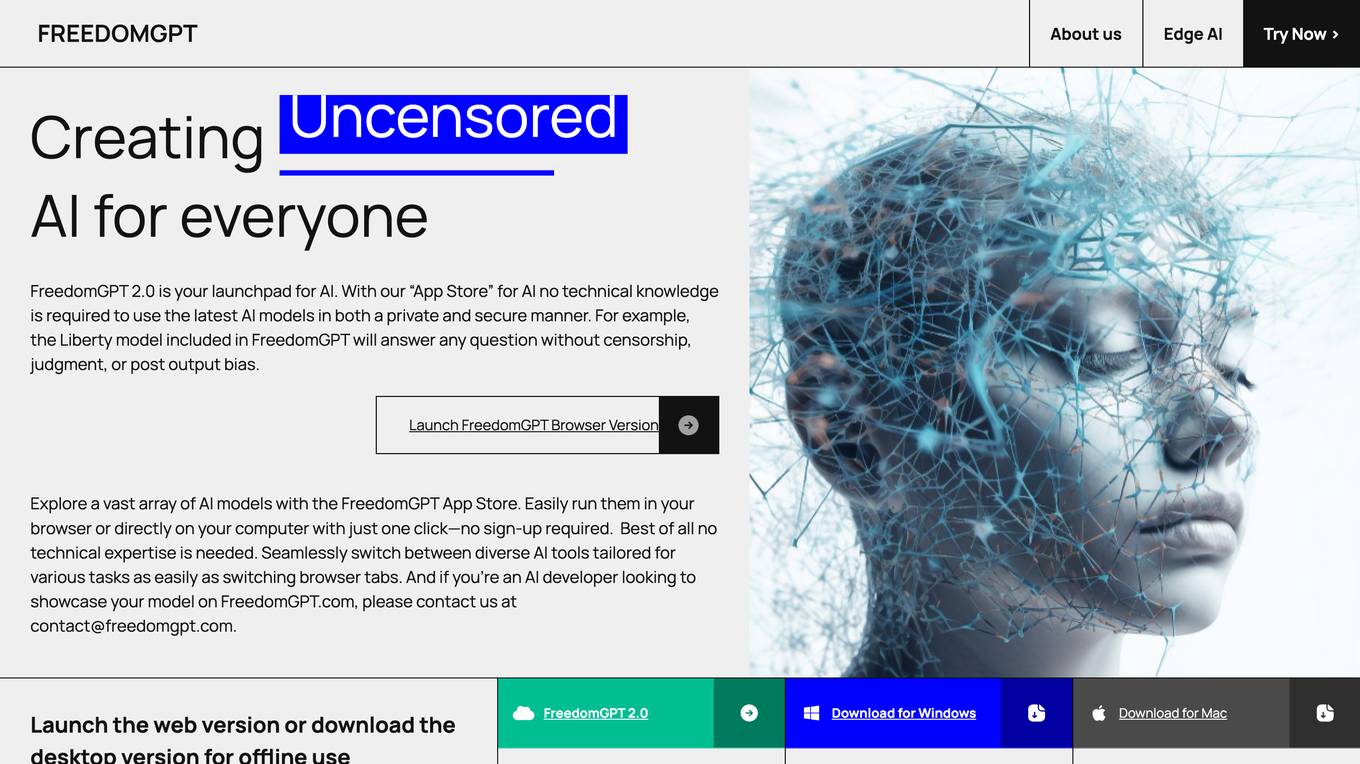
FreedomGPT
FreedomGPT is a powerful AI platform that provides access to a wide range of AI models without the need for technical knowledge. With its user-friendly interface and offline capabilities, FreedomGPT empowers users to explore and utilize AI for various tasks and applications. The platform is committed to privacy and offers an open-source approach, encouraging collaboration and innovation within the AI community.
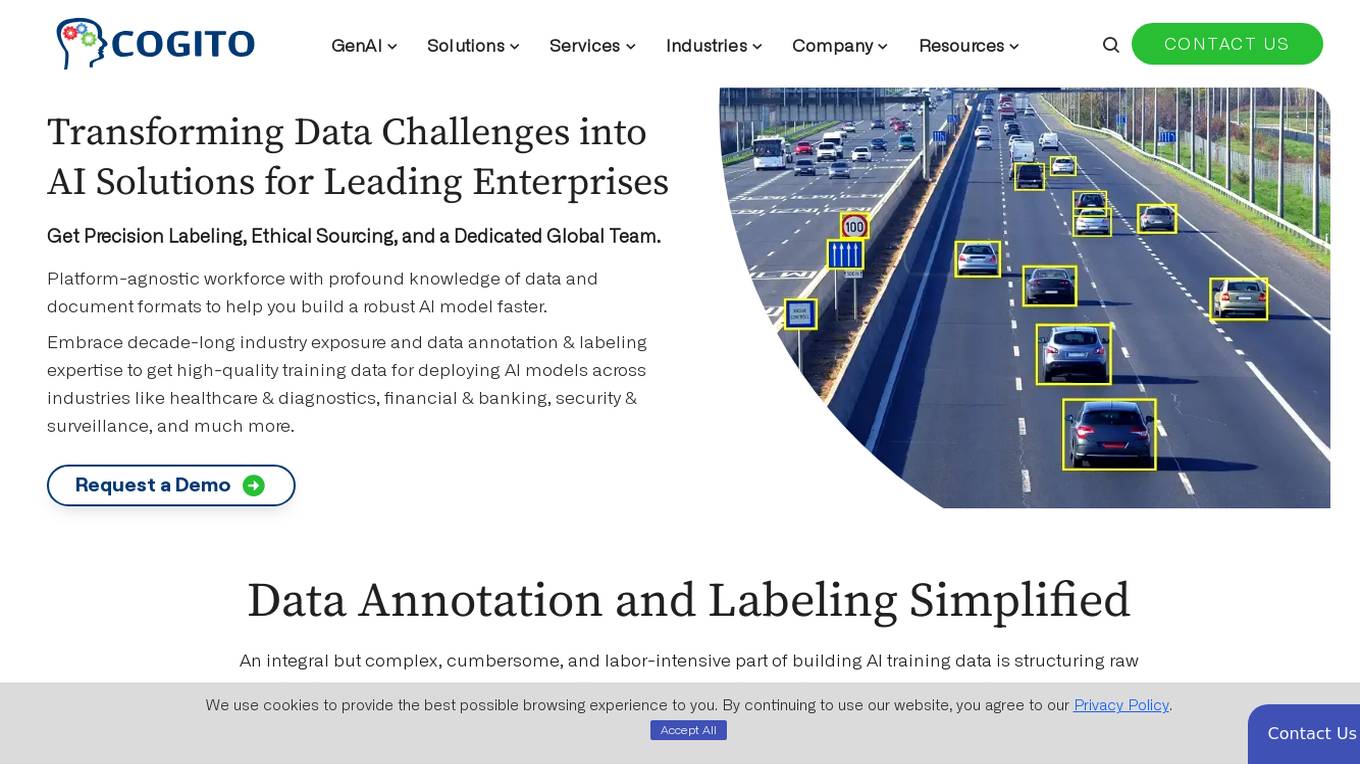
Cogitotech
Cogitotech is an AI tool that specializes in data annotation and labeling expertise. The platform offers a comprehensive suite of services tailored to meet training data needs for computer vision models and AI applications. With a decade-long industry exposure, Cogitotech provides high-quality training data for industries like healthcare, financial services, security, and more. The platform helps minimize biases in AI algorithms and ensures accurate and reliable training data solutions for deploying AI in real-life systems.
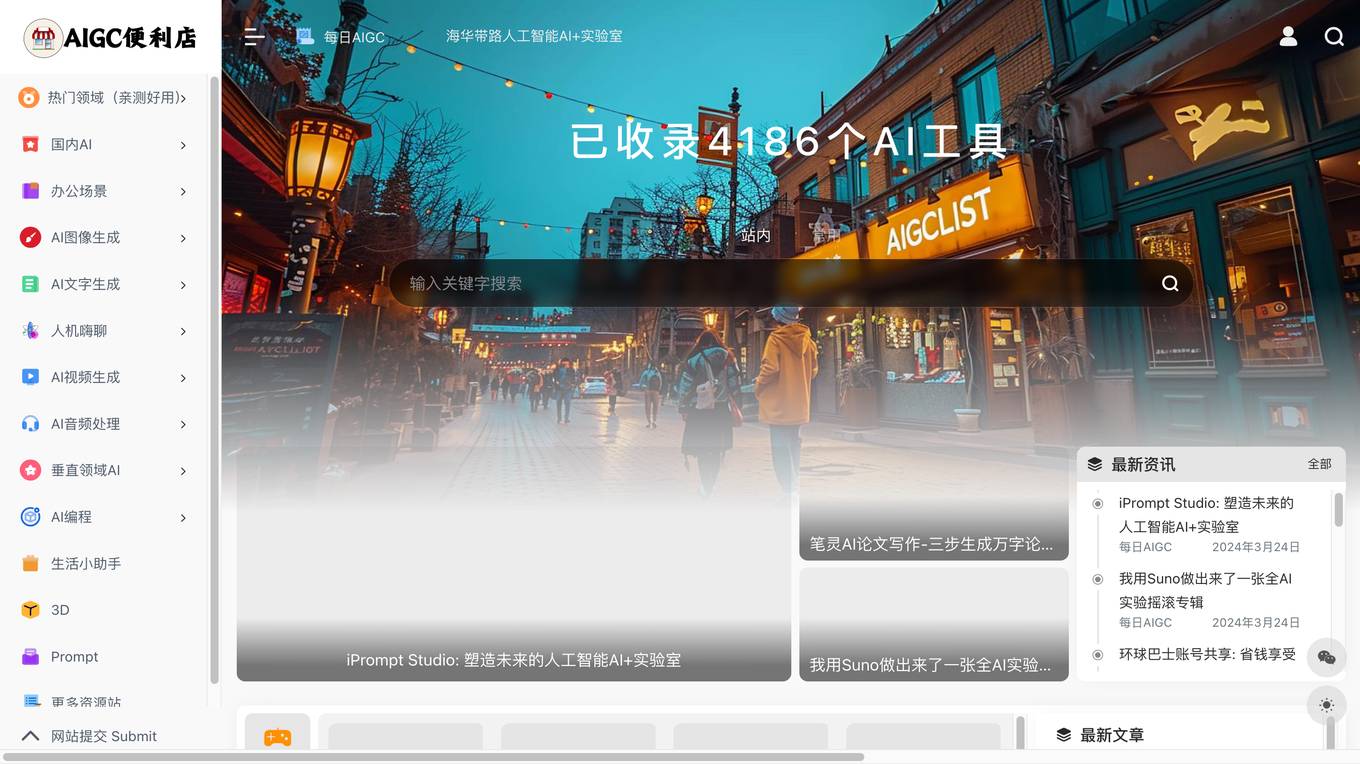
Aigclist
Aigclist is a website that provides a directory of AI tools and resources. The website is designed to help users find the right AI tools for their needs. Aigclist also provides information on AI trends and news.
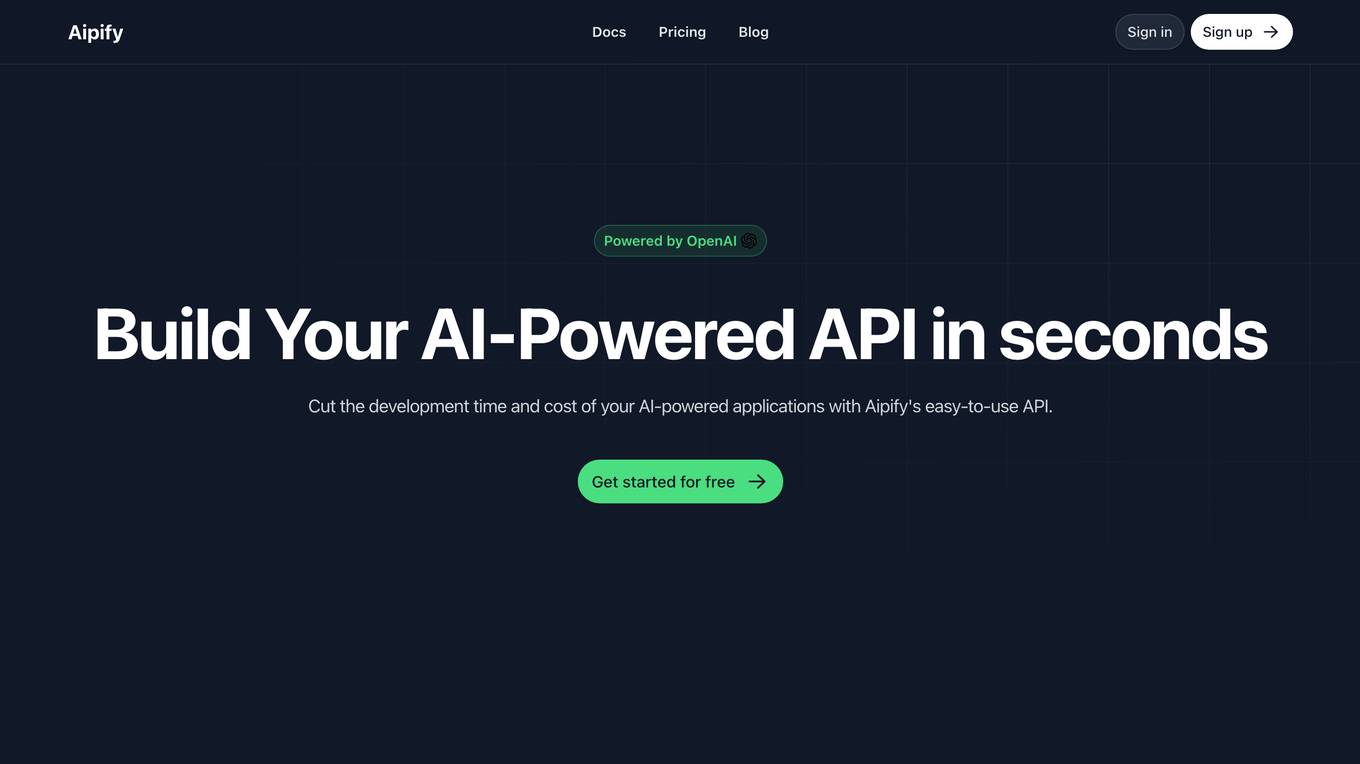
Aipify
Aipify is a platform that allows users to build AI-powered APIs in seconds. With Aipify, users can access the latest AI models, including GPT-4, to enhance their applications' capabilities. Aipify's APIs are easy to use and affordable, making them a great choice for businesses of all sizes.
11 - Open Source AI Tools
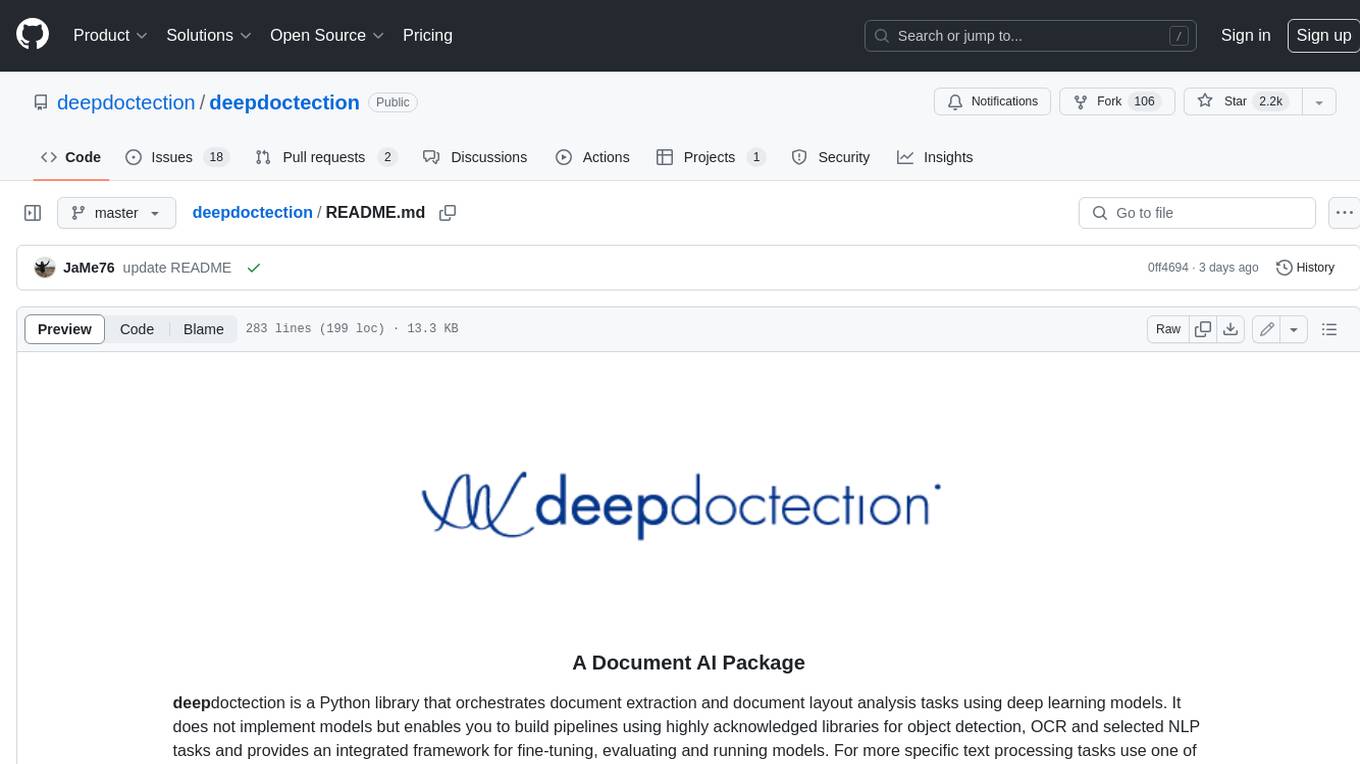
deepdoctection
**deep** doctection is a Python library that orchestrates document extraction and document layout analysis tasks using deep learning models. It does not implement models but enables you to build pipelines using highly acknowledged libraries for object detection, OCR and selected NLP tasks and provides an integrated framework for fine-tuning, evaluating and running models. For more specific text processing tasks use one of the many other great NLP libraries. **deep** doctection focuses on applications and is made for those who want to solve real world problems related to document extraction from PDFs or scans in various image formats. **deep** doctection provides model wrappers of supported libraries for various tasks to be integrated into pipelines. Its core function does not depend on any specific deep learning library. Selected models for the following tasks are currently supported: * Document layout analysis including table recognition in Tensorflow with **Tensorpack**, or PyTorch with **Detectron2**, * OCR with support of **Tesseract**, **DocTr** (Tensorflow and PyTorch implementations available) and a wrapper to an API for a commercial solution, * Text mining for native PDFs with **pdfplumber**, * Language detection with **fastText**, * Deskewing and rotating images with **jdeskew**. * Document and token classification with all LayoutLM models provided by the **Transformer library**. (Yes, you can use any LayoutLM-model with any of the provided OCR-or pdfplumber tools straight away!). * Table detection and table structure recognition with **table-transformer**. * There is a small dataset for token classification available and a lot of new tutorials to show, how to train and evaluate this dataset using LayoutLMv1, LayoutLMv2, LayoutXLM and LayoutLMv3. * Comprehensive configuration of **analyzer** like choosing different models, output parsing, OCR selection. Check this notebook or the docs for more infos. * Document layout analysis and table recognition now runs with **Torchscript** (CPU) as well and **Detectron2** is not required anymore for basic inference. * [**new**] More angle predictors for determining the rotation of a document based on **Tesseract** and **DocTr** (not contained in the built-in Analyzer). * [**new**] Token classification with **LiLT** via **transformers**. We have added a model wrapper for token classification with LiLT and added a some LiLT models to the model catalog that seem to look promising, especially if you want to train a model on non-english data. The training script for LayoutLM can be used for LiLT as well and we will be providing a notebook on how to train a model on a custom dataset soon. **deep** doctection provides on top of that methods for pre-processing inputs to models like cropping or resizing and to post-process results, like validating duplicate outputs, relating words to detected layout segments or ordering words into contiguous text. You will get an output in JSON format that you can customize even further by yourself. Have a look at the **introduction notebook** in the notebook repo for an easy start. Check the **release notes** for recent updates. **deep** doctection or its support libraries provide pre-trained models that are in most of the cases available at the **Hugging Face Model Hub** or that will be automatically downloaded once requested. For instance, you can find pre-trained object detection models from the Tensorpack or Detectron2 framework for coarse layout analysis, table cell detection and table recognition. Training is a substantial part to get pipelines ready on some specific domain, let it be document layout analysis, document classification or NER. **deep** doctection provides training scripts for models that are based on trainers developed from the library that hosts the model code. Moreover, **deep** doctection hosts code to some well established datasets like **Publaynet** that makes it easy to experiment. It also contains mappings from widely used data formats like COCO and it has a dataset framework (akin to **datasets** so that setting up training on a custom dataset becomes very easy. **This notebook** shows you how to do this. **deep** doctection comes equipped with a framework that allows you to evaluate predictions of a single or multiple models in a pipeline against some ground truth. Check again **here** how it is done. Having set up a pipeline it takes you a few lines of code to instantiate the pipeline and after a for loop all pages will be processed through the pipeline.
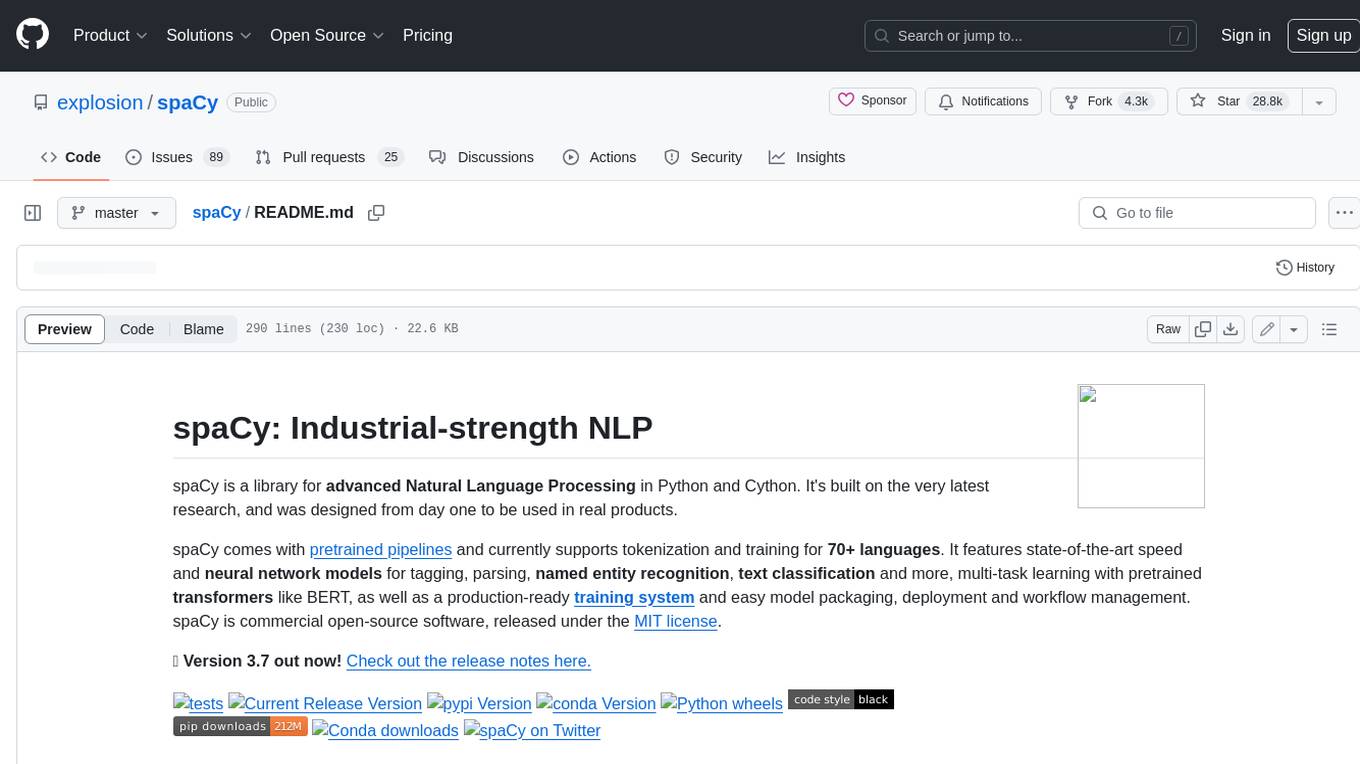
spaCy
spaCy is an industrial-strength Natural Language Processing (NLP) library in Python and Cython. It incorporates the latest research and is designed for real-world applications. The library offers pretrained pipelines supporting 70+ languages, with advanced neural network models for tasks such as tagging, parsing, named entity recognition, and text classification. It also facilitates multi-task learning with pretrained transformers like BERT, along with a production-ready training system and streamlined model packaging, deployment, and workflow management. spaCy is commercial open-source software released under the MIT license.
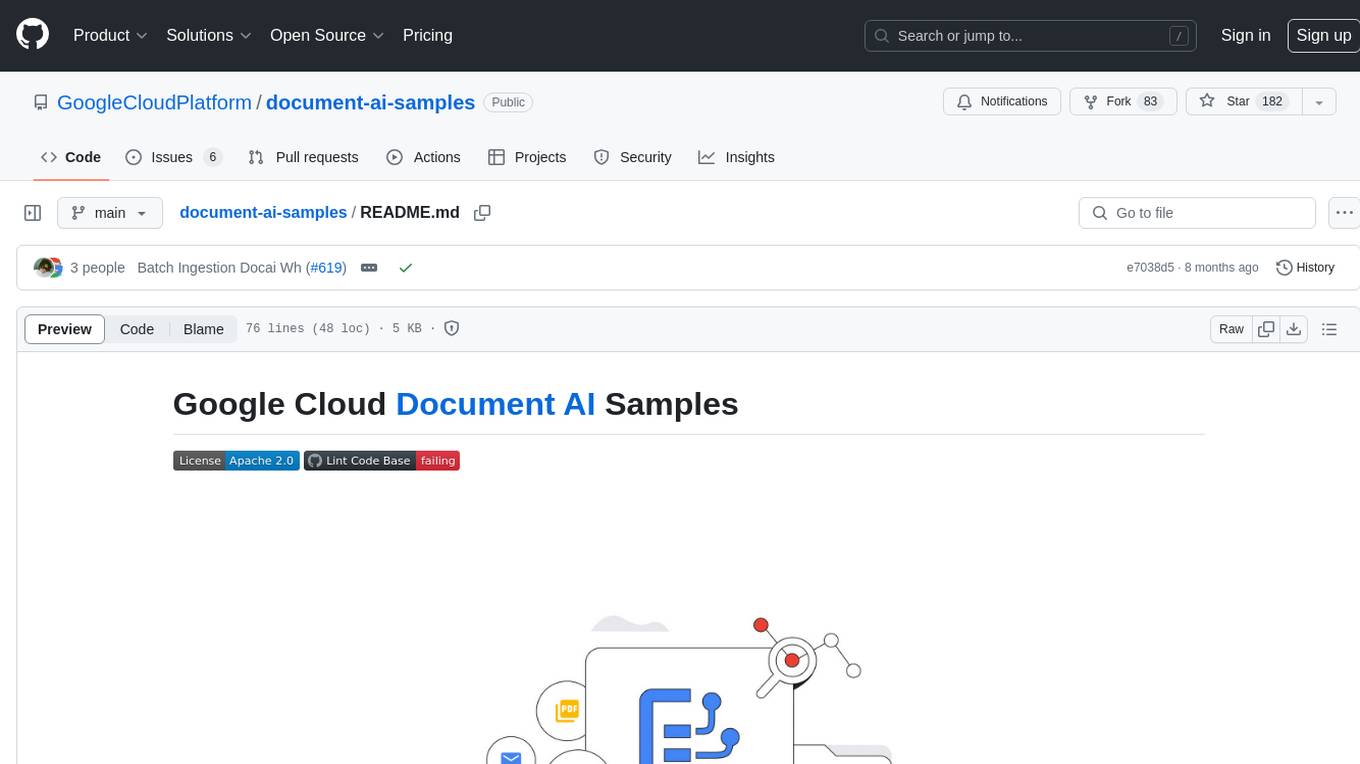
document-ai-samples
The Google Cloud Document AI Samples repository contains code samples and Community Samples demonstrating how to analyze, classify, and search documents using Google Cloud Document AI. It includes various projects showcasing different functionalities such as integrating with Google Drive, processing documents using Python, content moderation with Dialogflow CX, fraud detection, language extraction, paper summarization, tax processing pipeline, and more. The repository also provides access to test document files stored in a publicly-accessible Google Cloud Storage Bucket. Additionally, there are codelabs available for optical character recognition (OCR), form parsing, specialized processors, and managing Document AI processors. Community samples, like the PDF Annotator Sample, are also included. Contributions are welcome, and users can seek help or report issues through the repository's issues page. Please note that this repository is not an officially supported Google product and is intended for demonstrative purposes only.
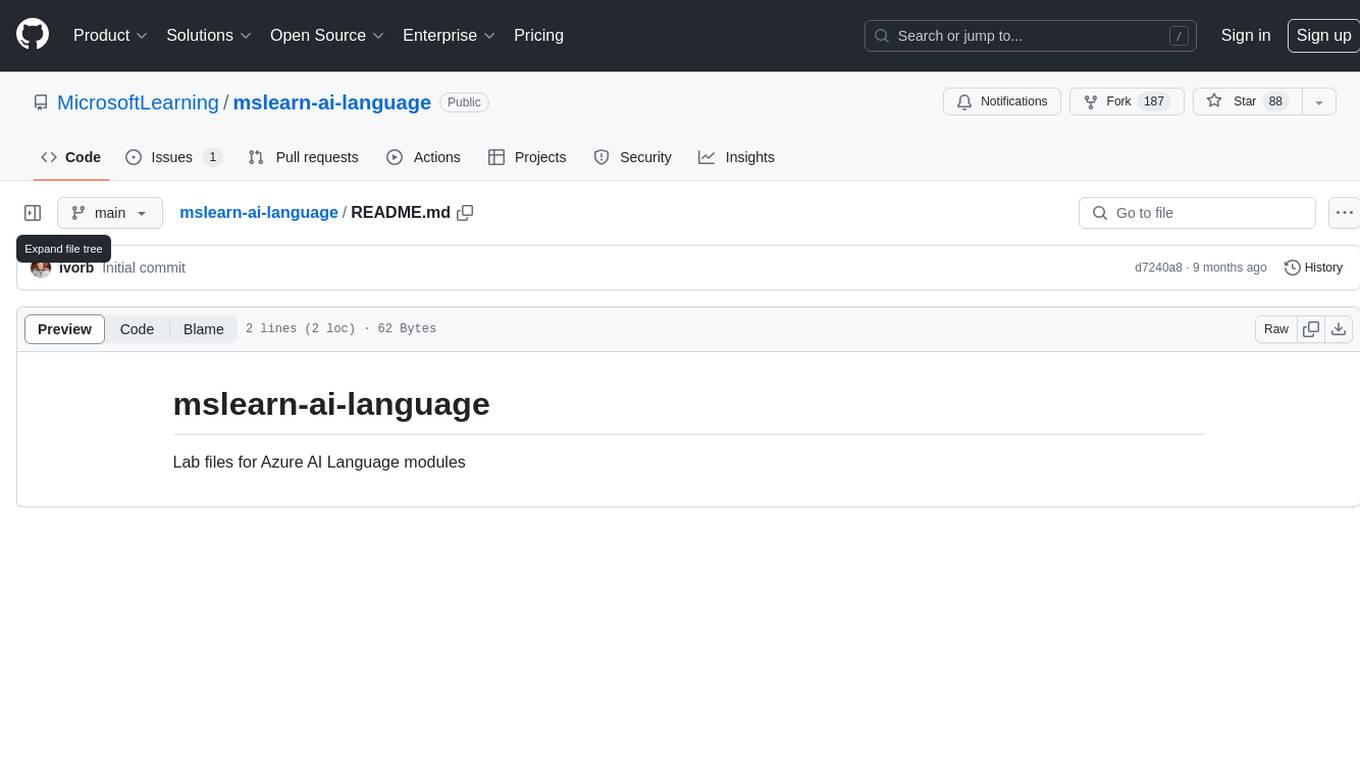
mslearn-ai-language
This repository contains lab files for Azure AI Language modules. It provides hands-on exercises and resources for learning about various AI language technologies on the Azure platform. The labs cover topics such as natural language processing, text analytics, language understanding, and more. By following the exercises in this repository, users can gain practical experience in implementing AI language solutions using Azure services.
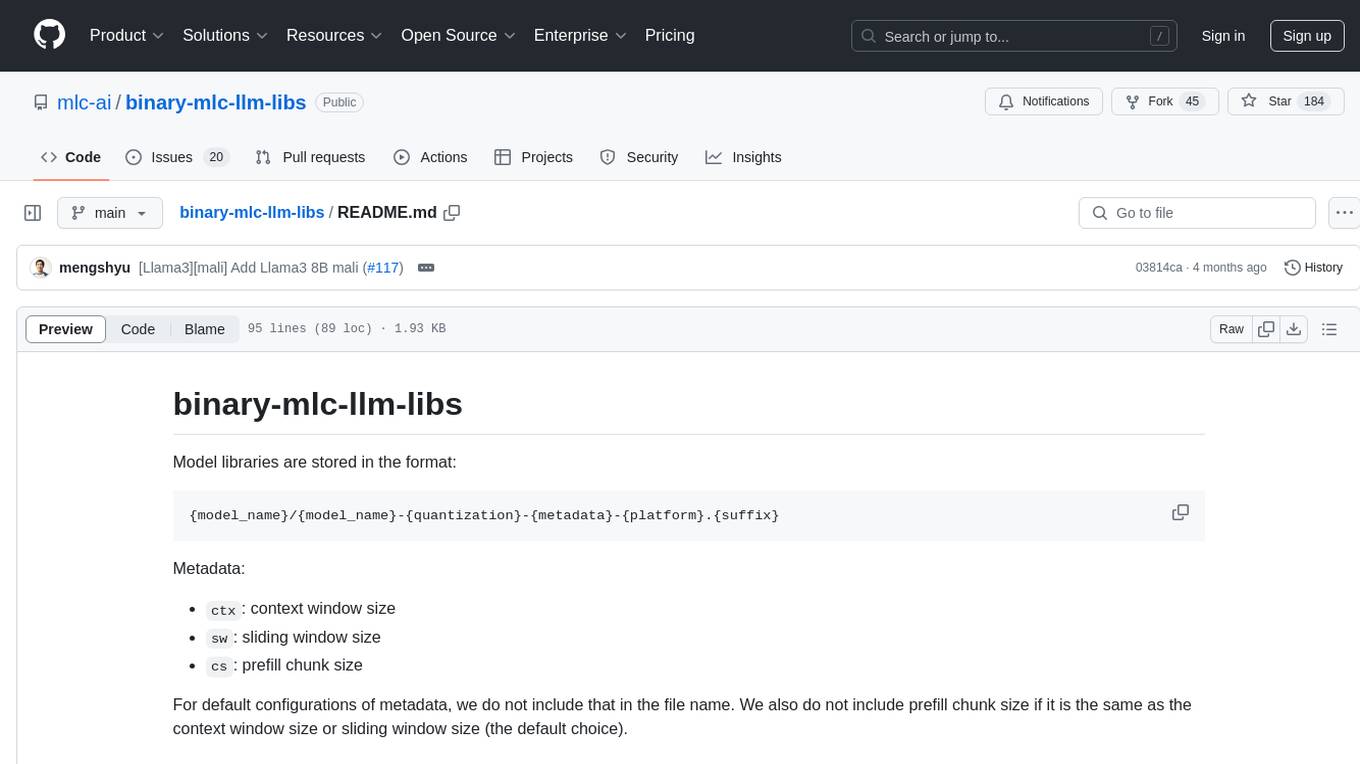
binary-mlc-llm-libs
The binary-mlc-llm-libs repository contains model libraries stored in a specific format. The file names include metadata such as context window size, sliding window size, and prefill chunk size. Default configurations are provided for some models, with certain metadata values omitted if they are the same as default choices. Users can access various pre-trained language models for different tasks using this repository.
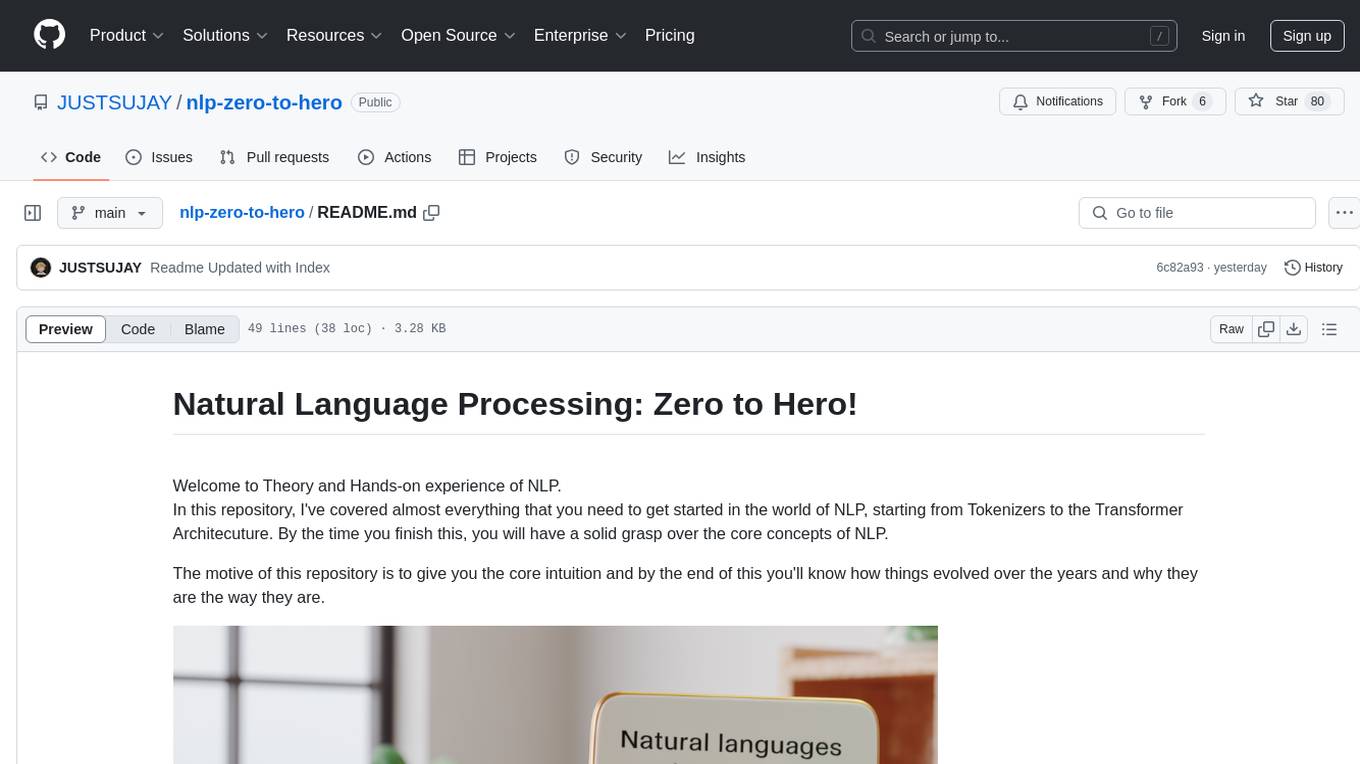
nlp-zero-to-hero
This repository provides a comprehensive guide to Natural Language Processing (NLP), covering topics from Tokenization to Transformer Architecture. It aims to equip users with a solid understanding of NLP concepts, evolution, and core intuition. The repository includes practical examples and hands-on experience to facilitate learning and exploration in the field of NLP.
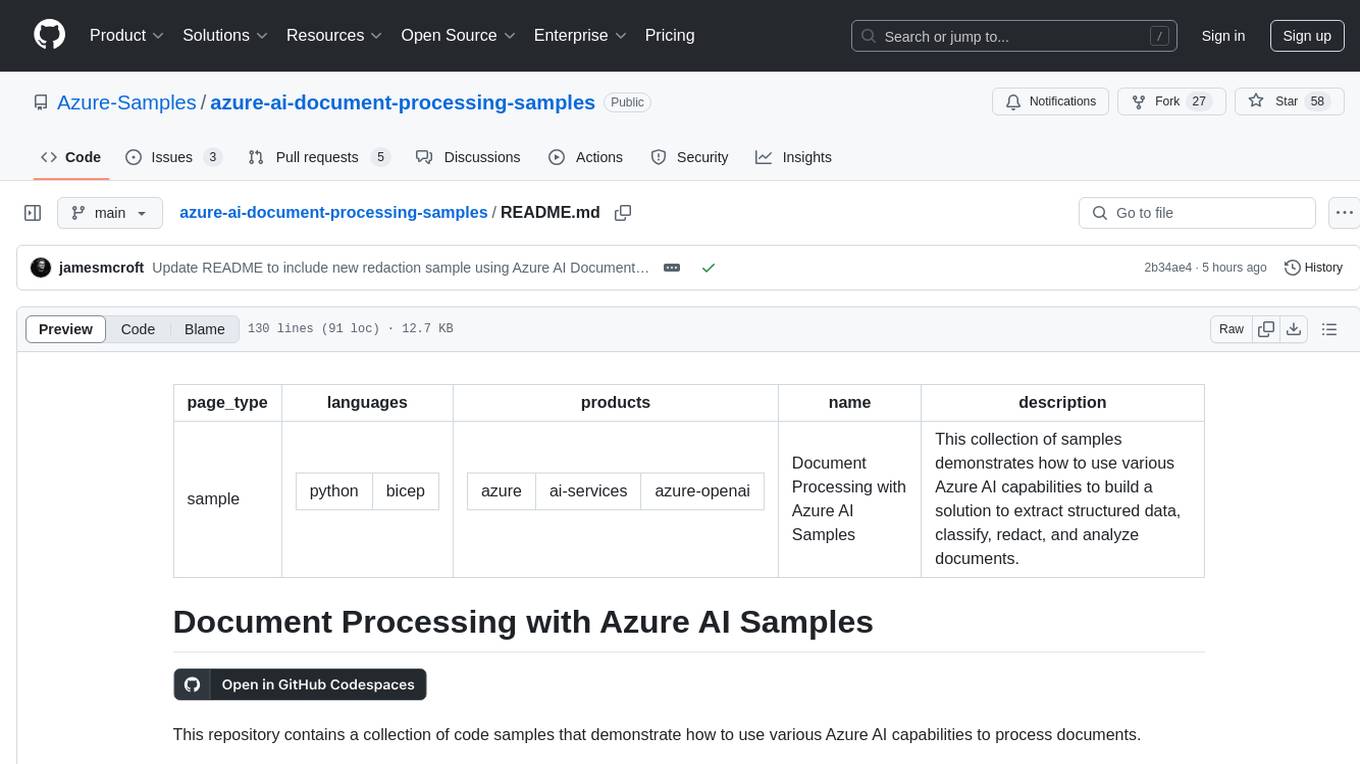
azure-ai-document-processing-samples
This repository contains a collection of code samples that demonstrate how to use various Azure AI capabilities to process documents. The samples help engineering teams establish techniques with Azure AI Foundry, Azure OpenAI, Azure AI Document Intelligence, and Azure AI Language services to build solutions for extracting structured data, classifying, and analyzing documents. The techniques simplify custom model training, improve reliability in document processing, and simplify document processing workflows by providing reusable code and patterns that can be easily modified and evaluated for most use cases.
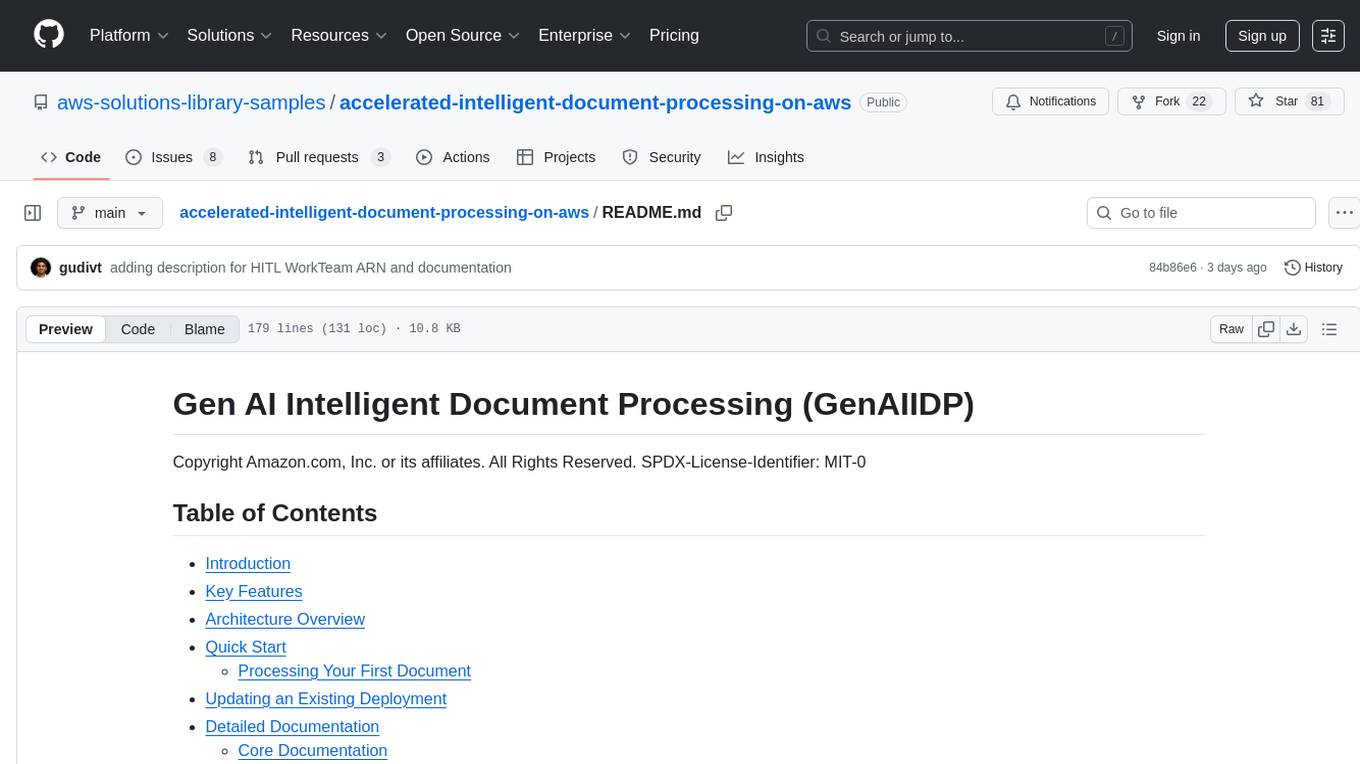
accelerated-intelligent-document-processing-on-aws
Accelerated Intelligent Document Processing on AWS is a scalable, serverless solution for automated document processing and information extraction using AWS services. It combines OCR capabilities with generative AI to convert unstructured documents into structured data at scale. The solution features a serverless architecture built on AWS technologies, modular processing patterns, advanced classification support, few-shot example support, custom business logic integration, high throughput processing, built-in resilience, cost optimization, comprehensive monitoring, web user interface, human-in-the-loop integration, AI-powered evaluation, extraction confidence assessment, and document knowledge base query. The architecture uses nested CloudFormation stacks to support multiple document processing patterns while maintaining common infrastructure for queueing, tracking, and monitoring.
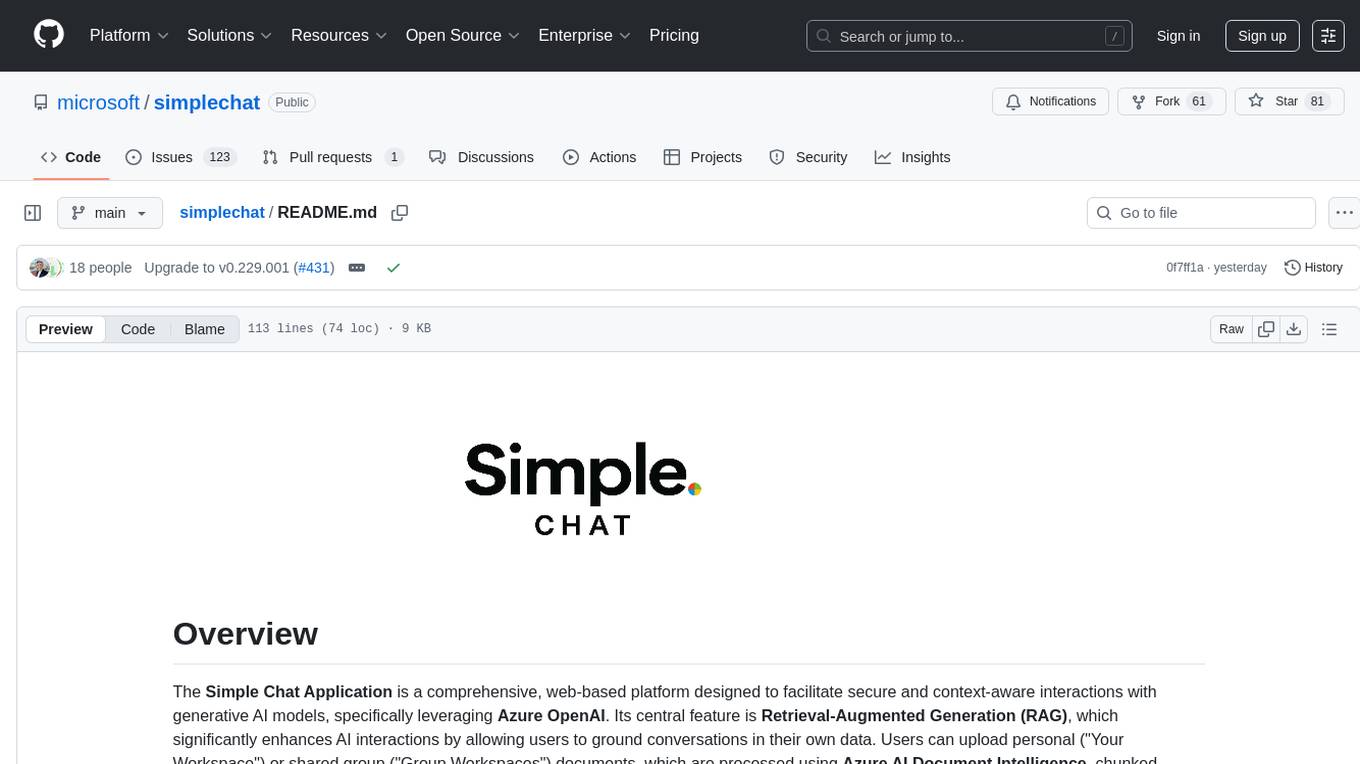
simplechat
The Simple Chat Application is a web-based platform that facilitates secure interactions with generative AI models, leveraging Azure OpenAI. It features Retrieval-Augmented Generation (RAG) for grounding conversations in user data. Users can upload personal or group documents processed using Azure AI Document Intelligence and Azure OpenAI Embeddings. The application offers optional features like Content Safety, Image Generation, Video and Audio processing, Document Classification, User Feedback, Conversation Archiving, Metadata Extraction, and Enhanced Citations. It uses Azure Cosmos DB for storage, Azure Active Directory for authentication, and runs on Azure App Service. Suitable for enterprise use, it supports knowledge discovery, content generation, and collaborative AI tasks in a secure, Azure-native framework.
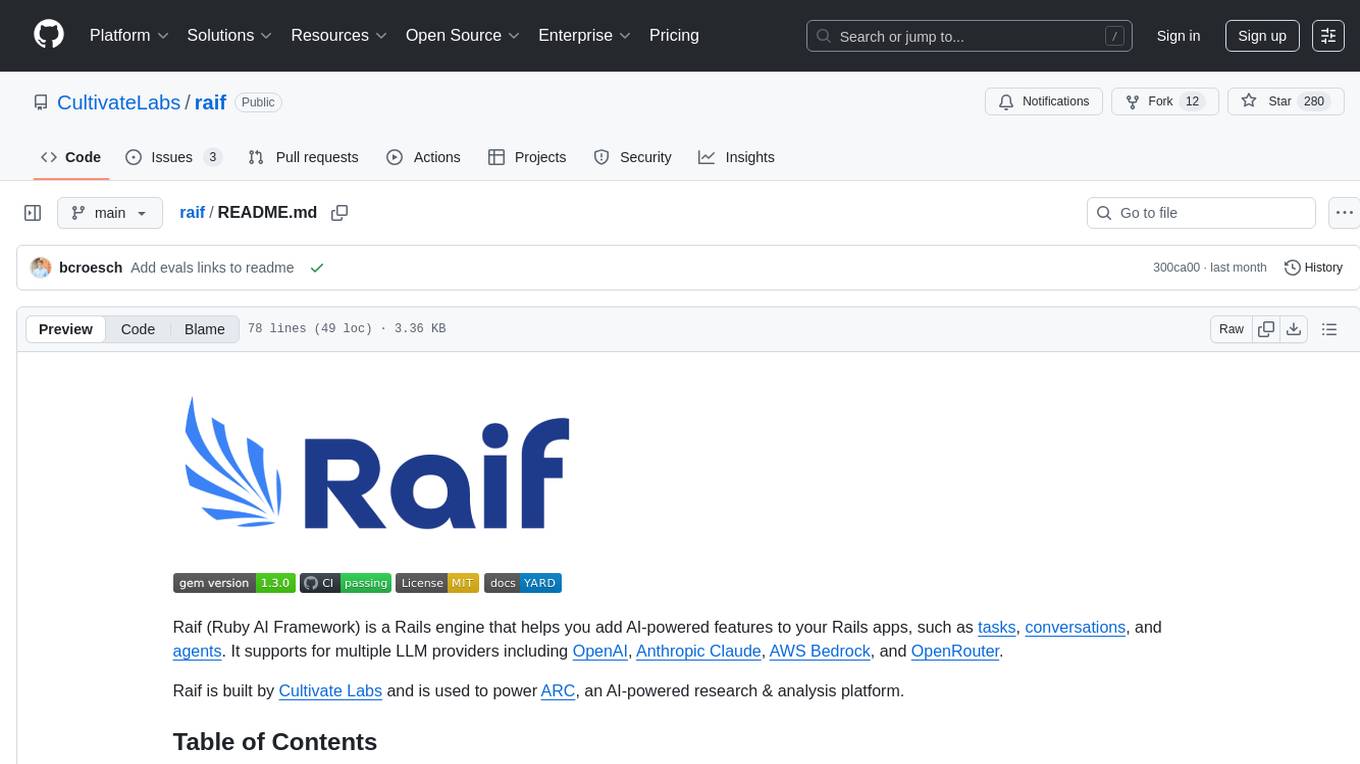
raif
Raif is a lightweight Python library for analyzing text data. It provides functionalities for text preprocessing, feature extraction, and text classification. With Raif, users can easily clean and preprocess text data, extract relevant features, and build machine learning models for text classification tasks. The library is designed to be user-friendly and efficient, making it suitable for both beginners and experienced data scientists.
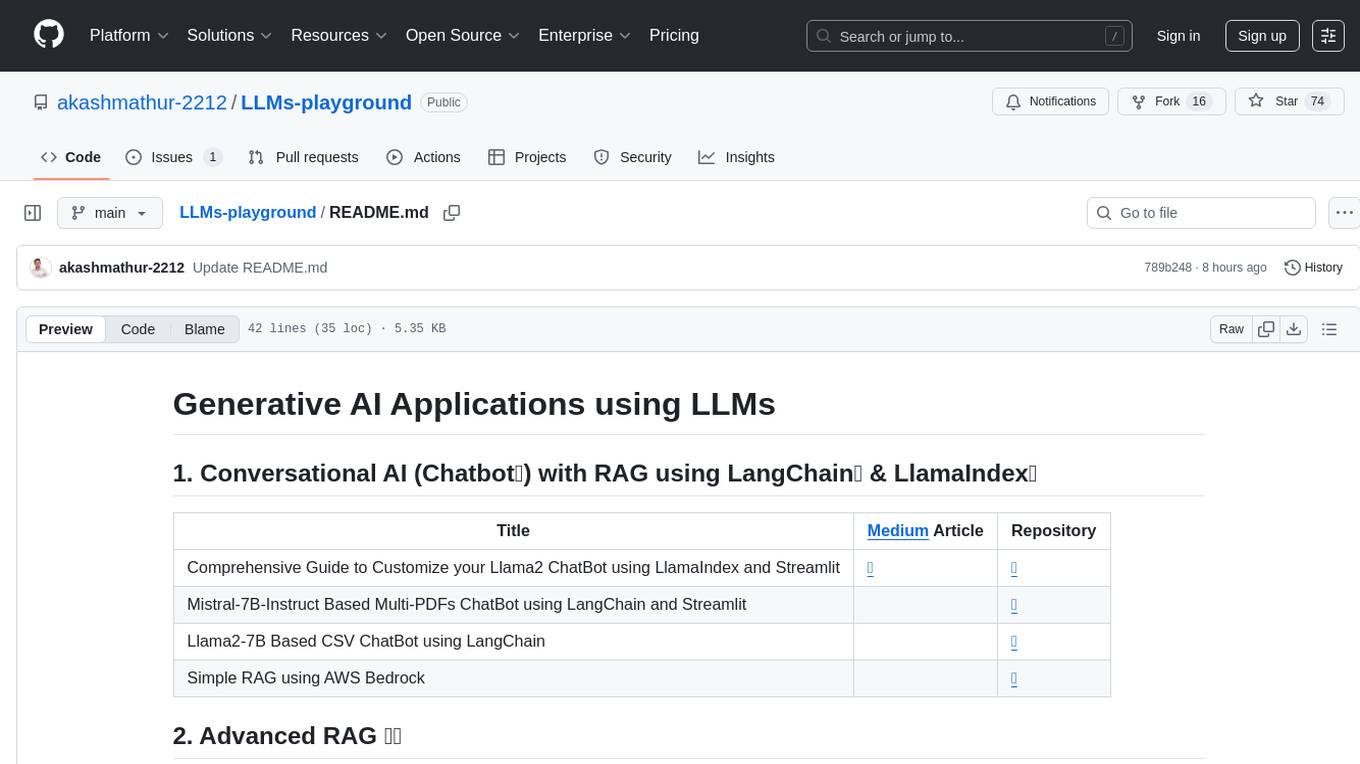
LLMs-playground
LLMs-playground is a repository containing code examples and tutorials for learning and experimenting with Large Language Models (LLMs). It provides a hands-on approach to understanding how LLMs work and how to fine-tune them for specific tasks. The repository covers various LLM architectures, pre-training techniques, and fine-tuning strategies, making it a valuable resource for researchers, students, and practitioners interested in natural language processing and machine learning. By exploring the code and following the tutorials, users can gain practical insights into working with LLMs and apply their knowledge to real-world projects.
20 - OpenAI Gpts
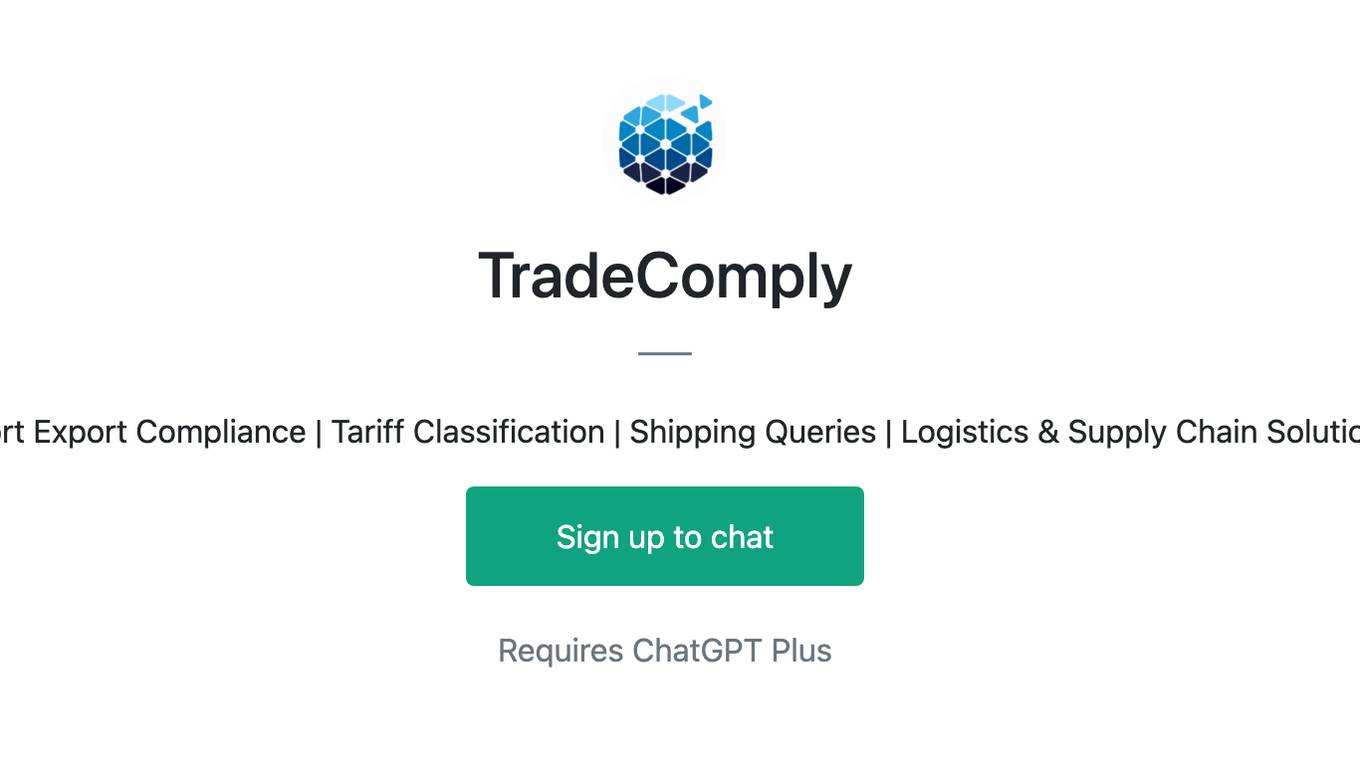
TradeComply
Import Export Compliance | Tariff Classification | Shipping Queries | Logistics & Supply Chain Solutions
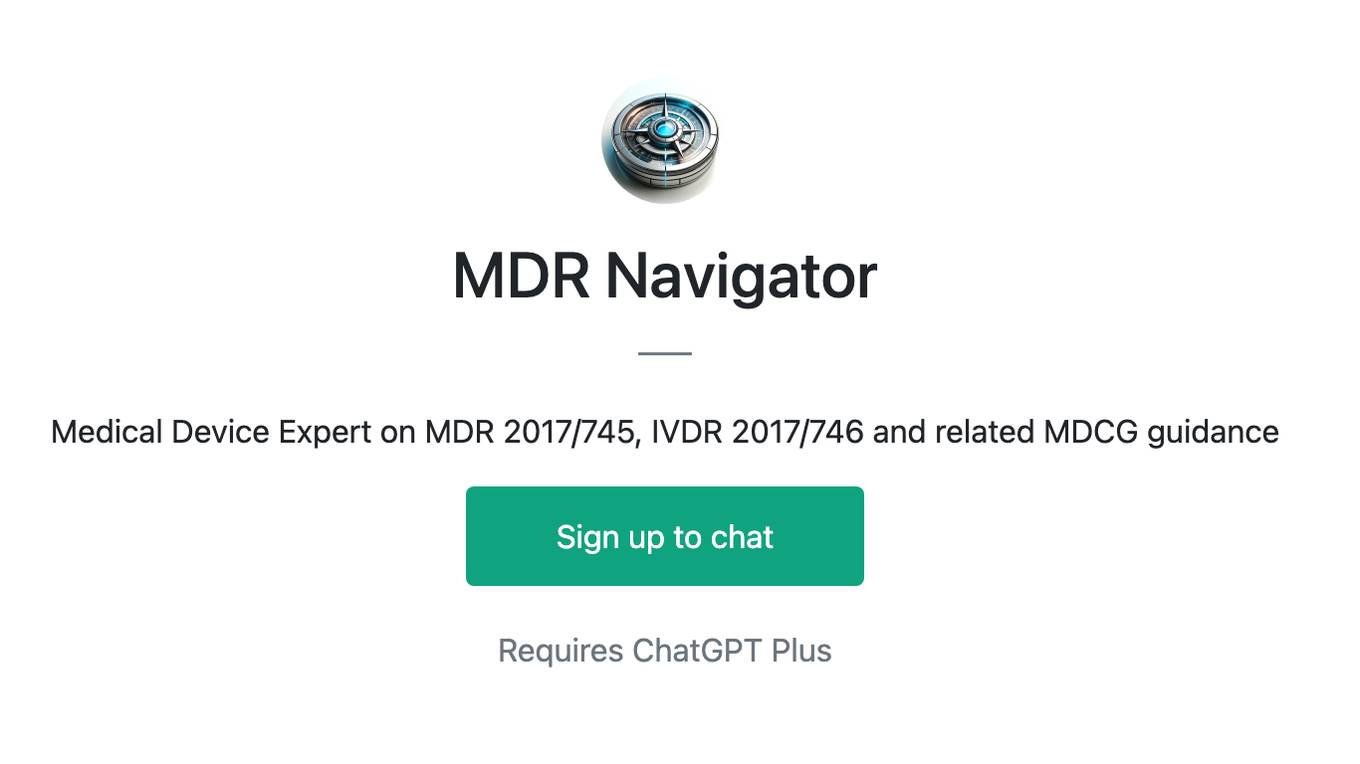
MDR Navigator
Medical Device Expert on MDR 2017/745, IVDR 2017/746 and related MDCG guidance
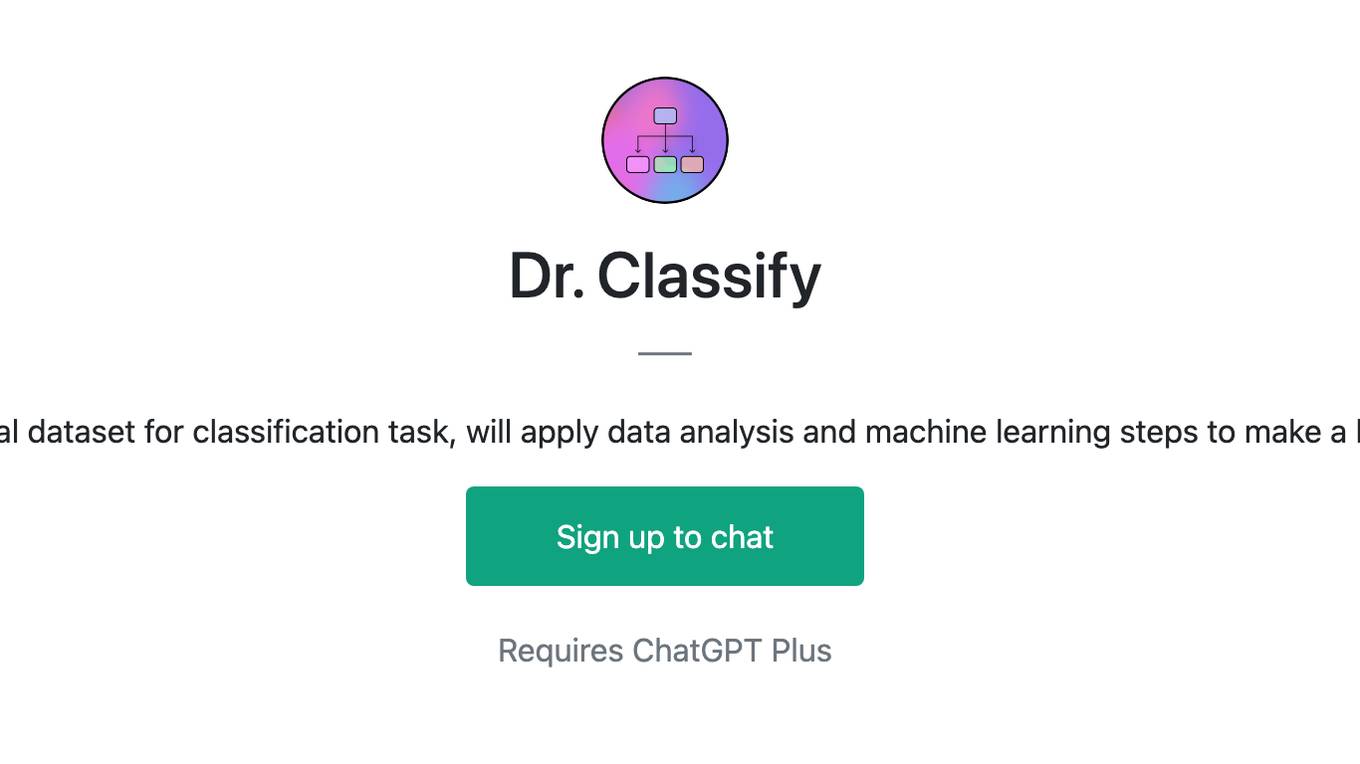
Dr. Classify
Just upload a numerical dataset for classification task, will apply data analysis and machine learning steps to make a best model possible.
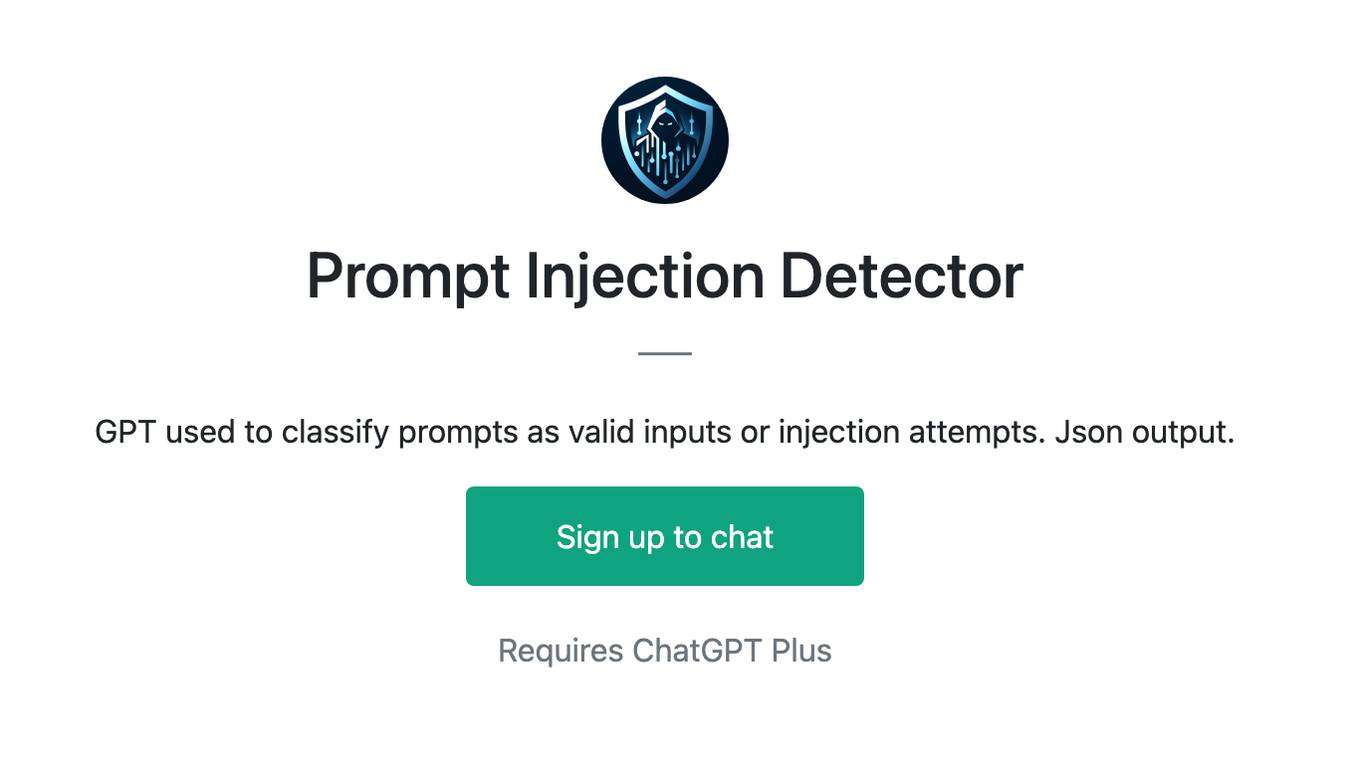
Prompt Injection Detector
GPT used to classify prompts as valid inputs or injection attempts. Json output.
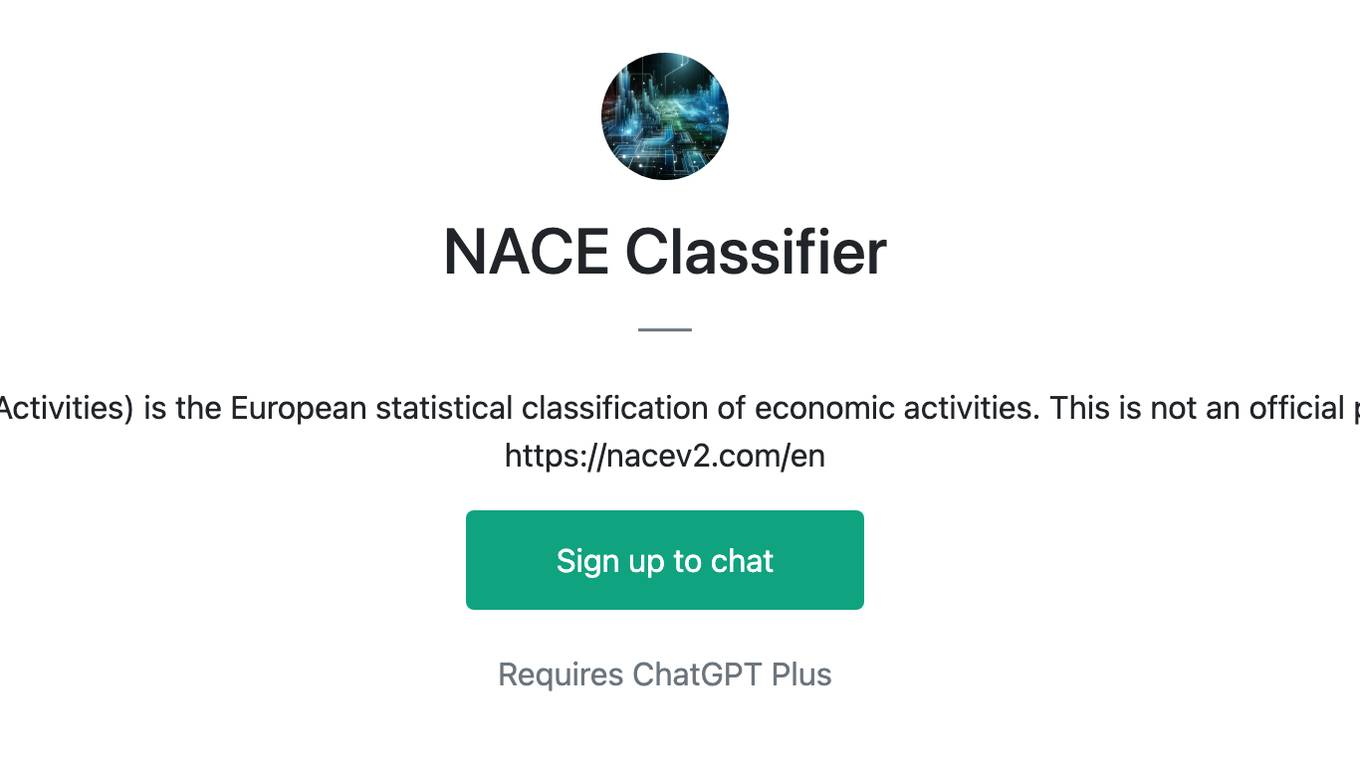
NACE Classifier
NACE (Nomenclature of Economic Activities) is the European statistical classification of economic activities. This is not an official product. Official information here: https://nacev2.com/en
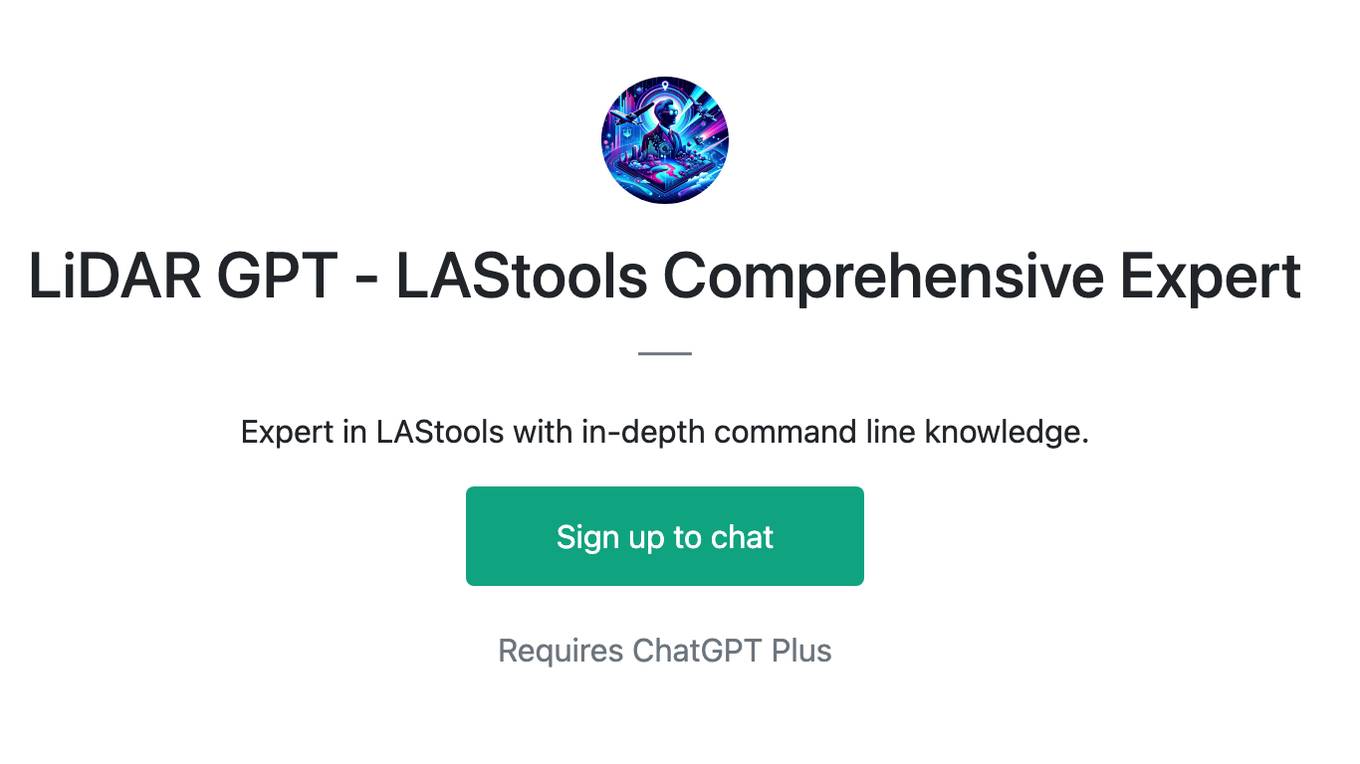
LiDAR GPT - LAStools Comprehensive Expert
Expert in LAStools with in-depth command line knowledge.
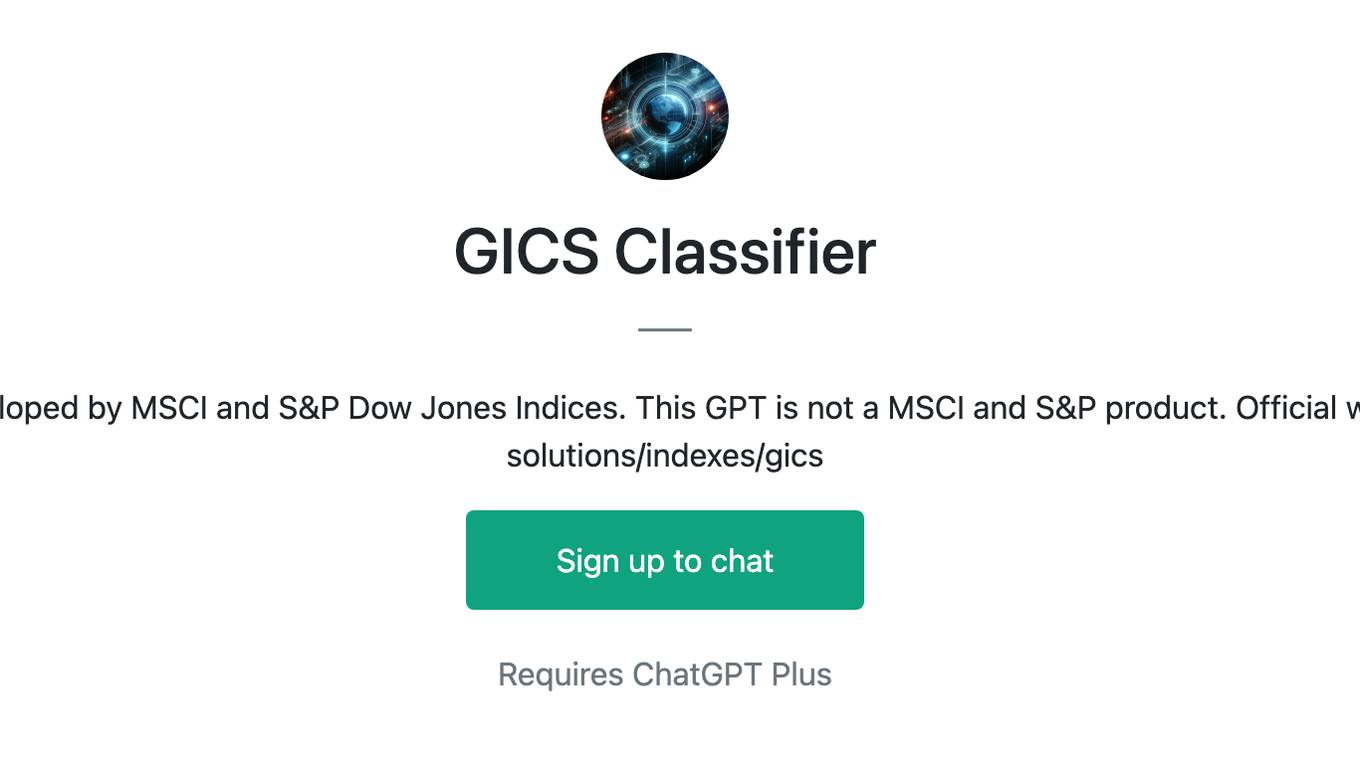
GICS Classifier
GICS is a classification standard developed by MSCI and S&P Dow Jones Indices. This GPT is not a MSCI and S&P product. Official website : https://www.msci.com/our-solutions/indexes/gics
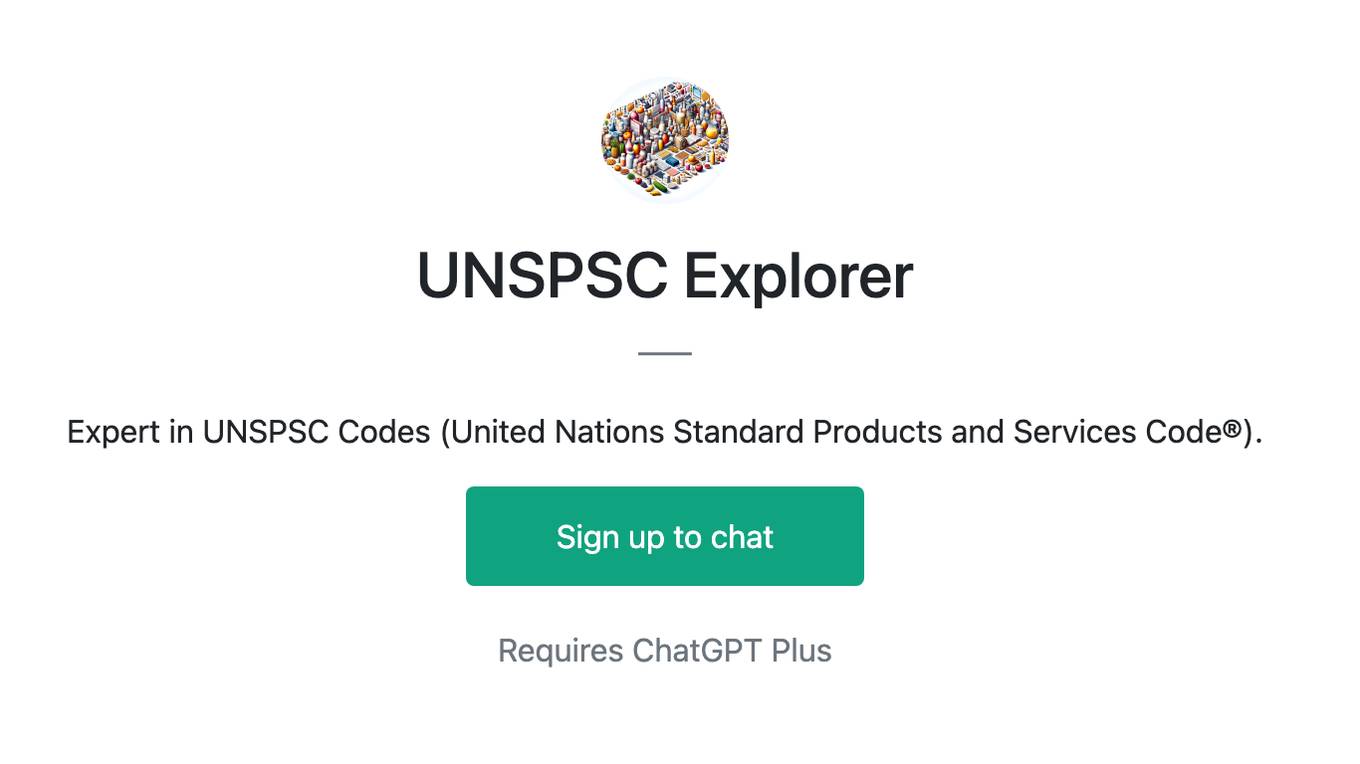
UNSPSC Explorer
Expert in UNSPSC Codes (United Nations Standard Products and Services Code®).
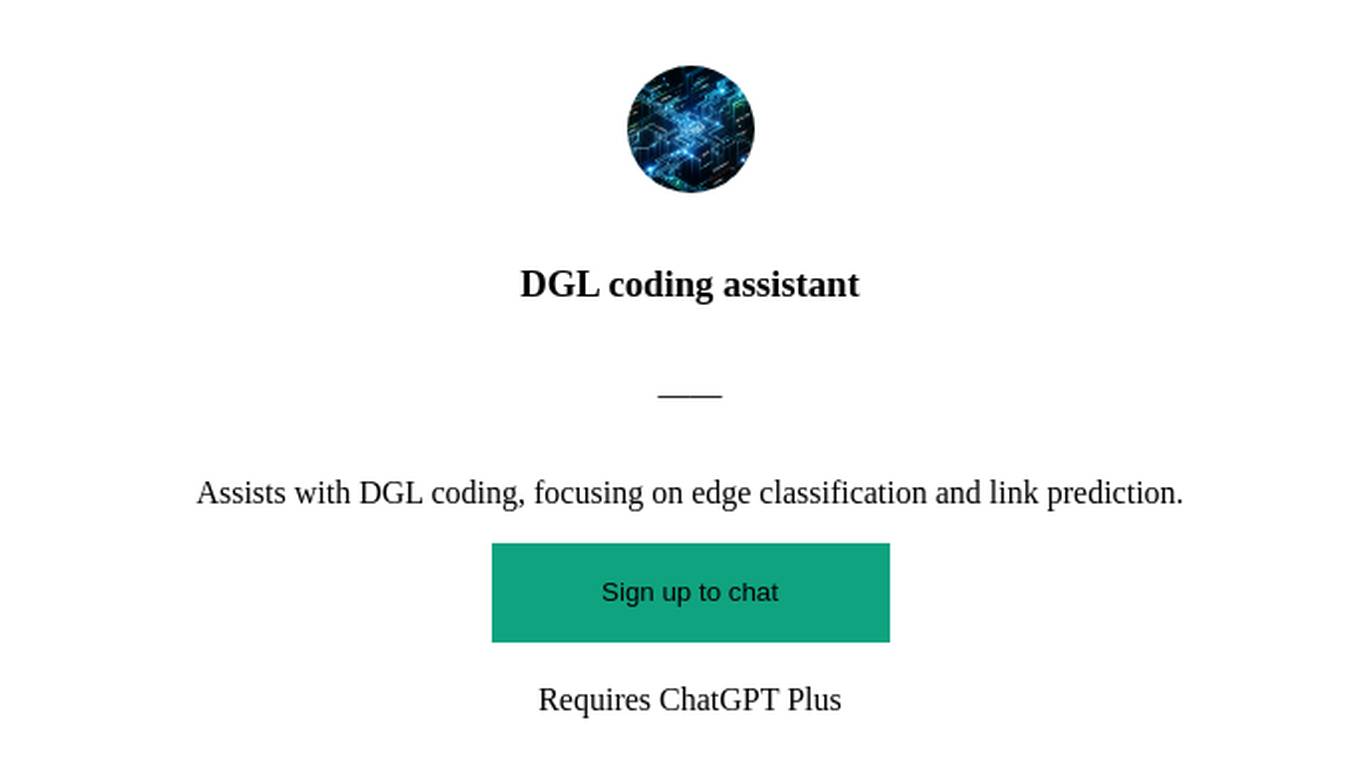
DGL coding assistant
Assists with DGL coding, focusing on edge classification and link prediction.
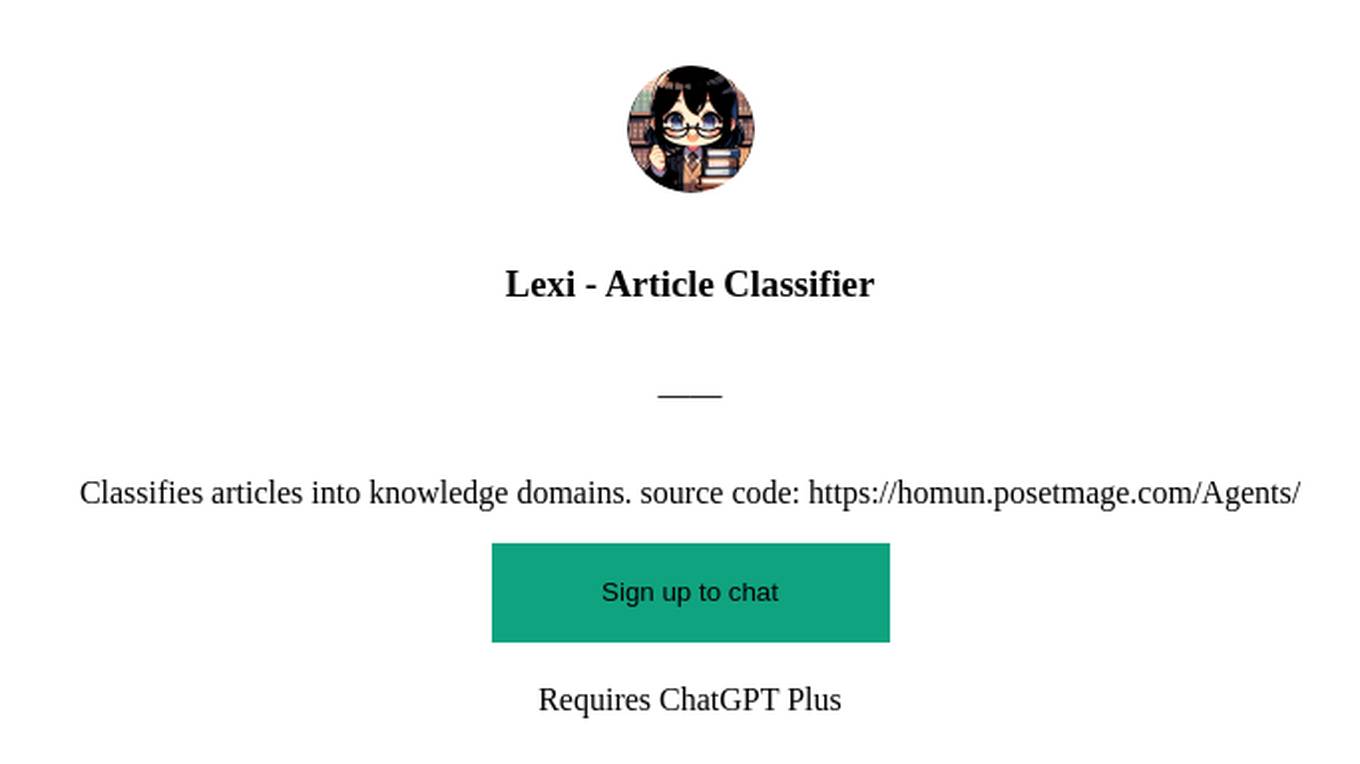
Lexi - Article Classifier
Classifies articles into knowledge domains. source code: https://homun.posetmage.com/Agents/
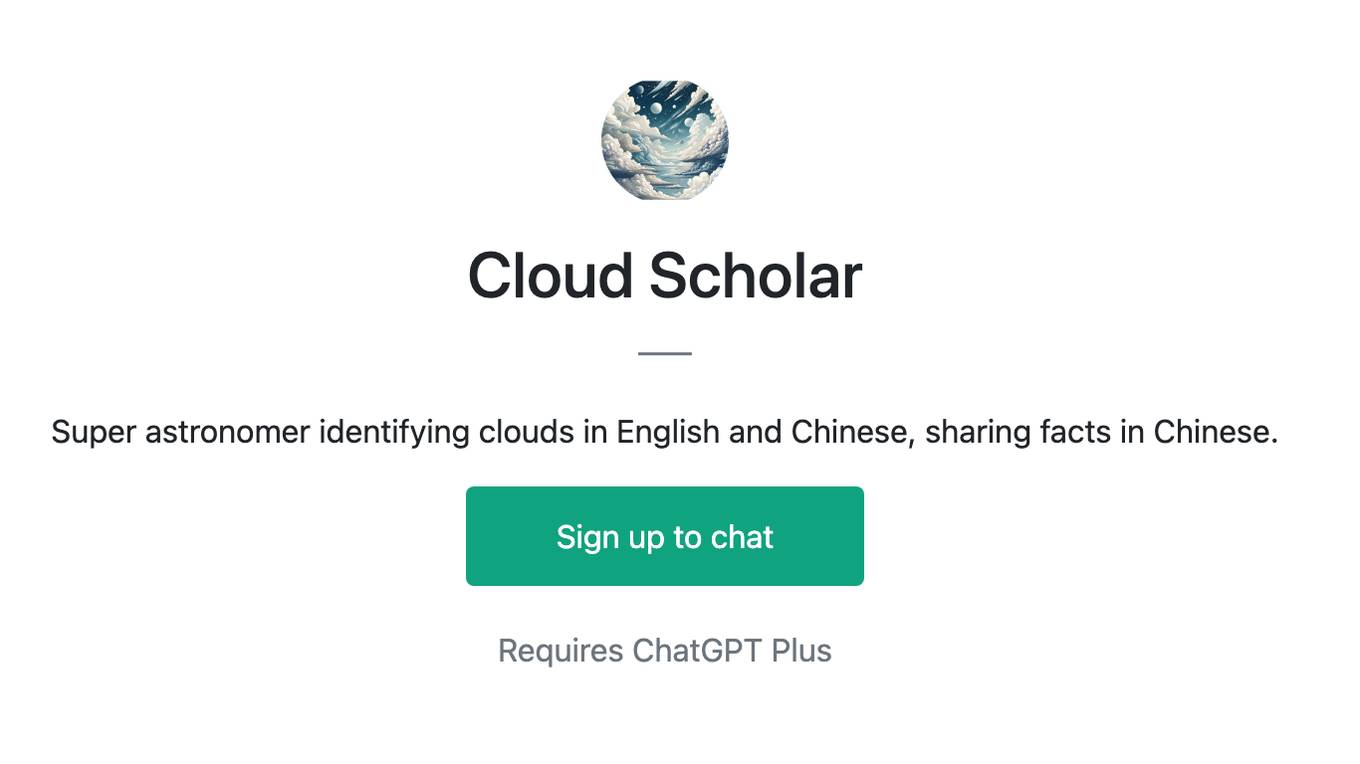
Cloud Scholar
Super astronomer identifying clouds in English and Chinese, sharing facts in Chinese.
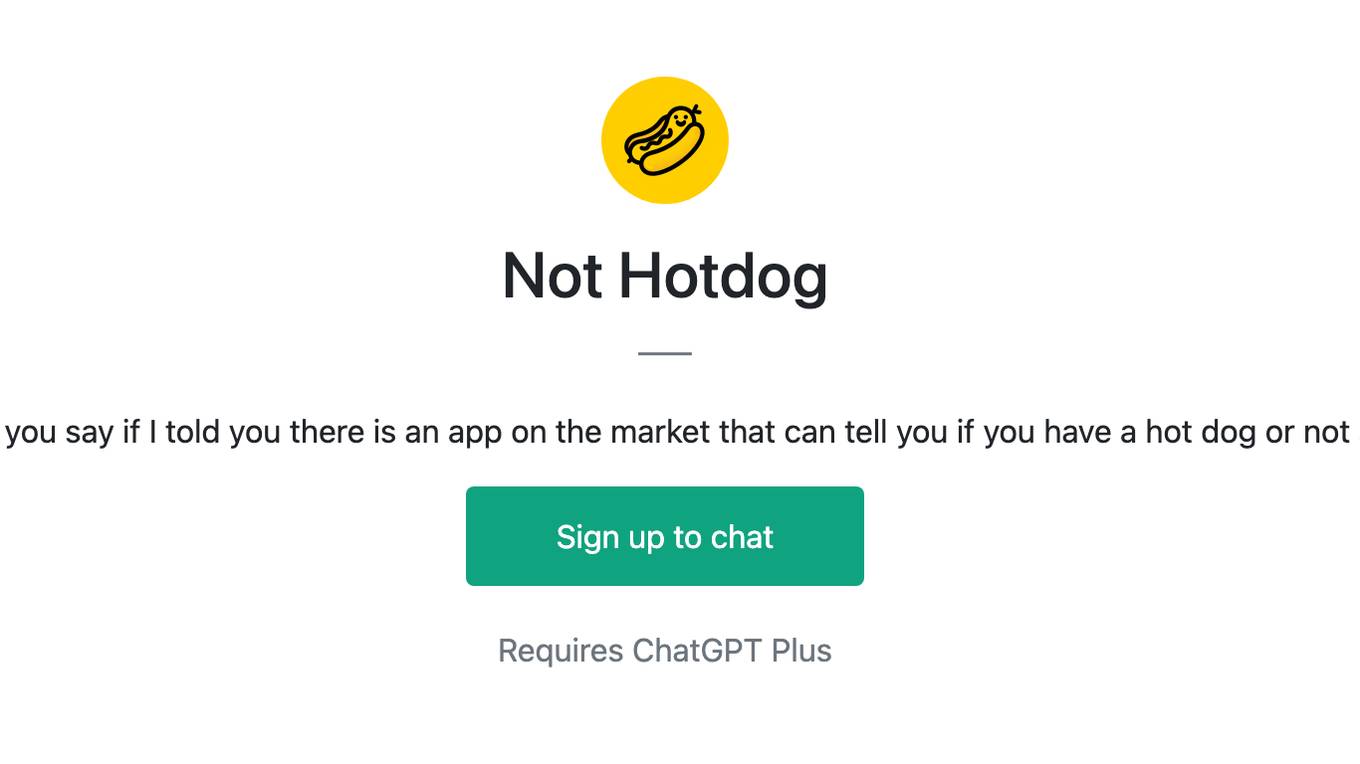
Not Hotdog
What would you say if I told you there is an app on the market that can tell you if you have a hot dog or not a hot dog.
